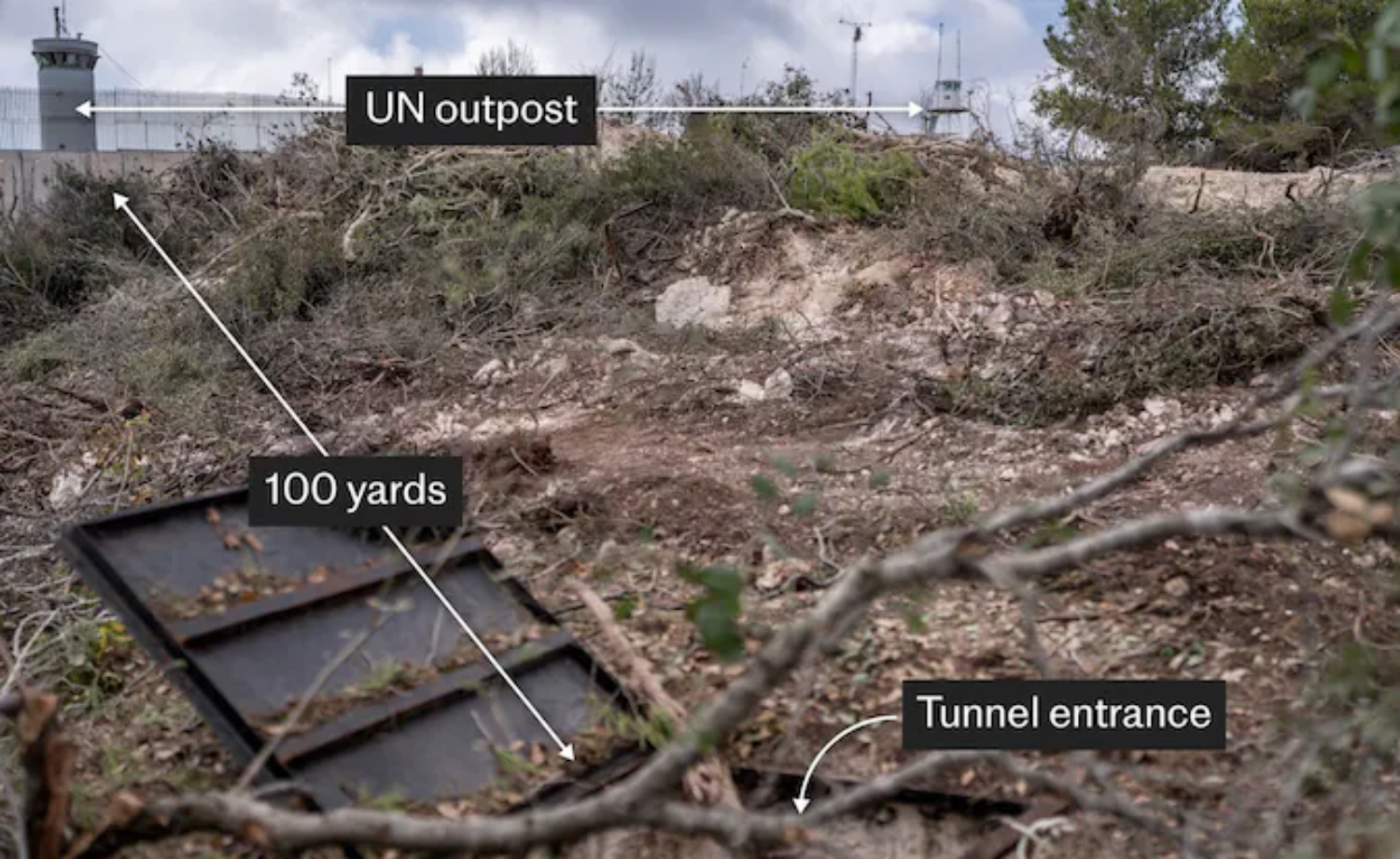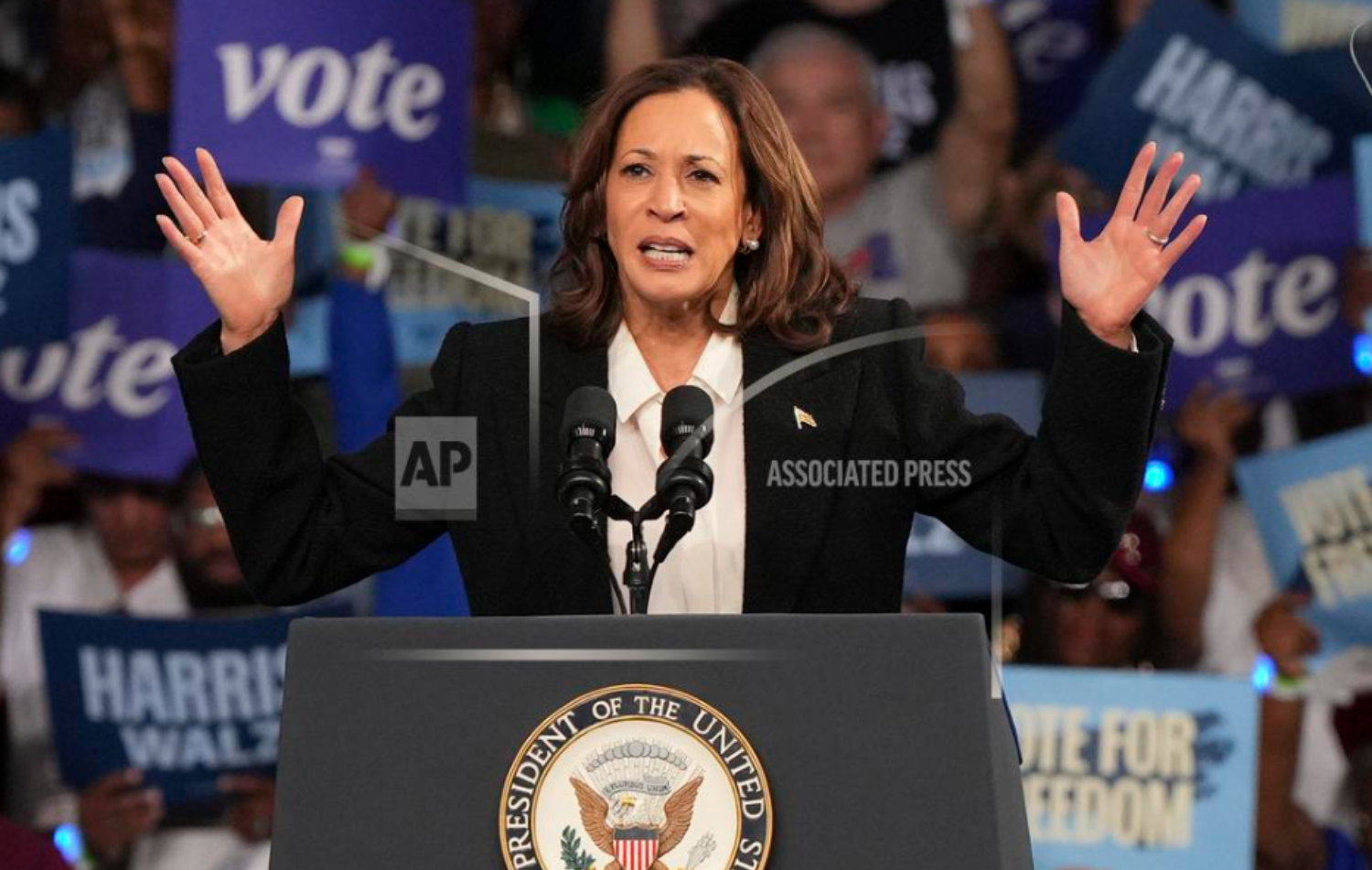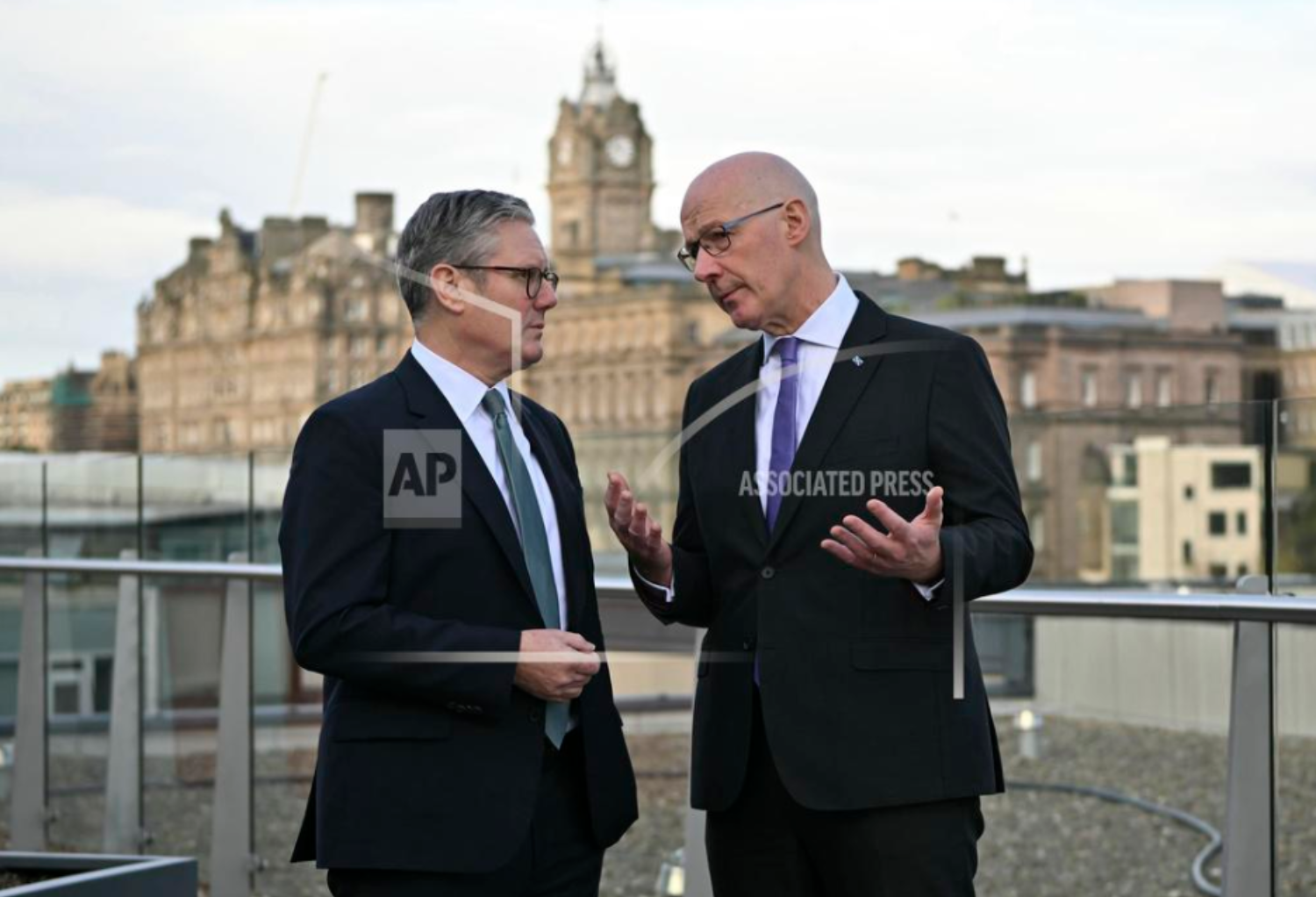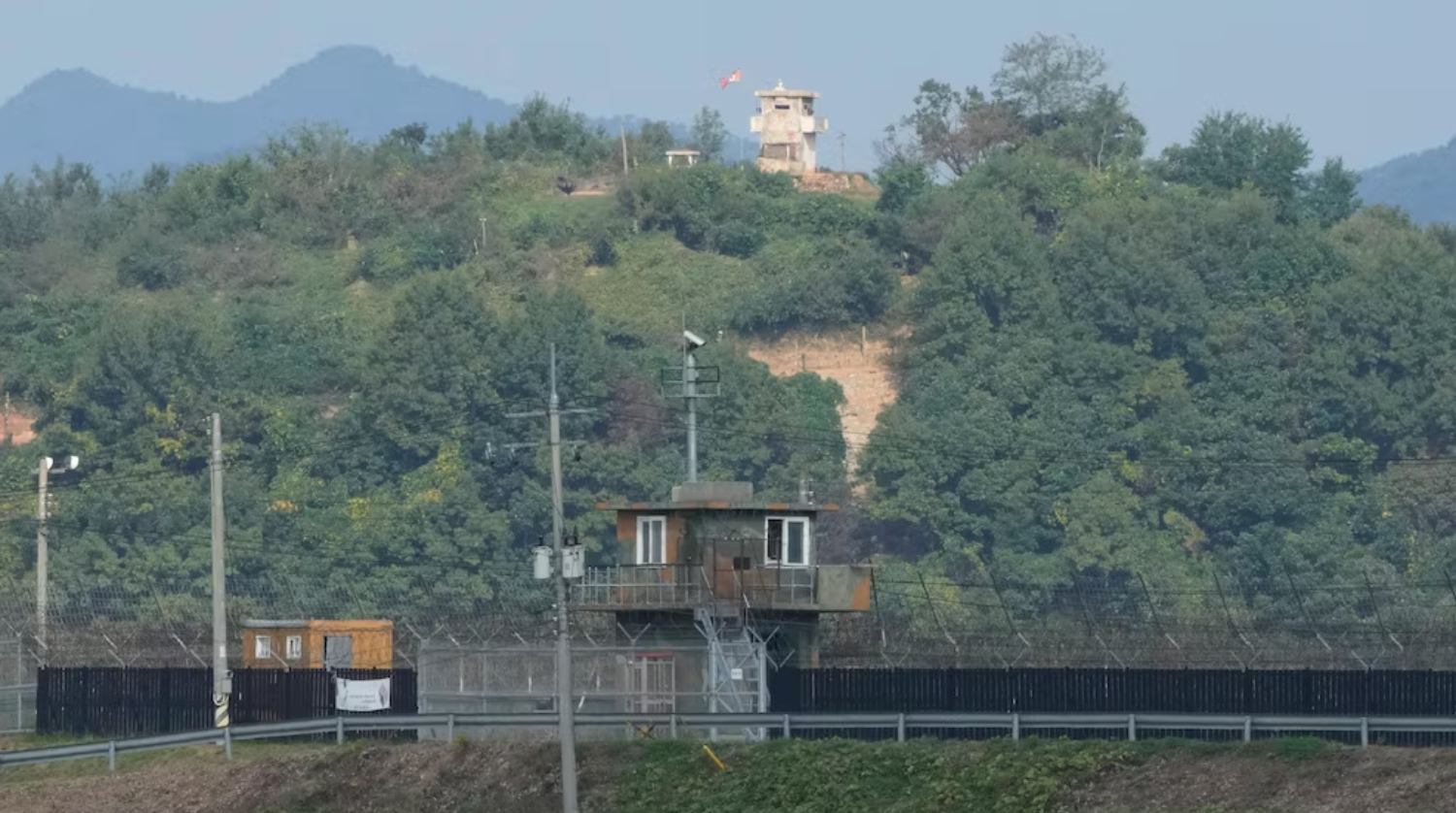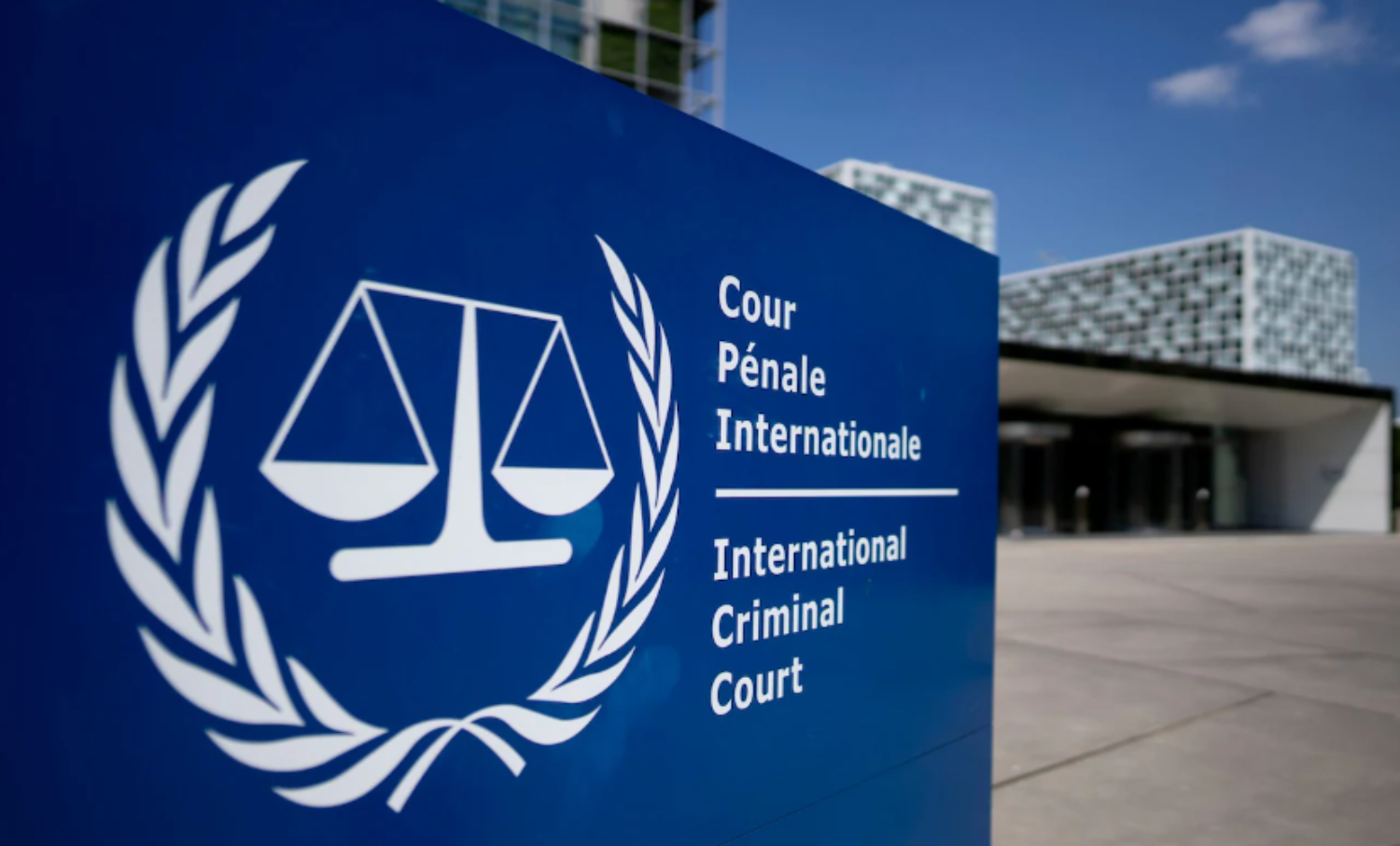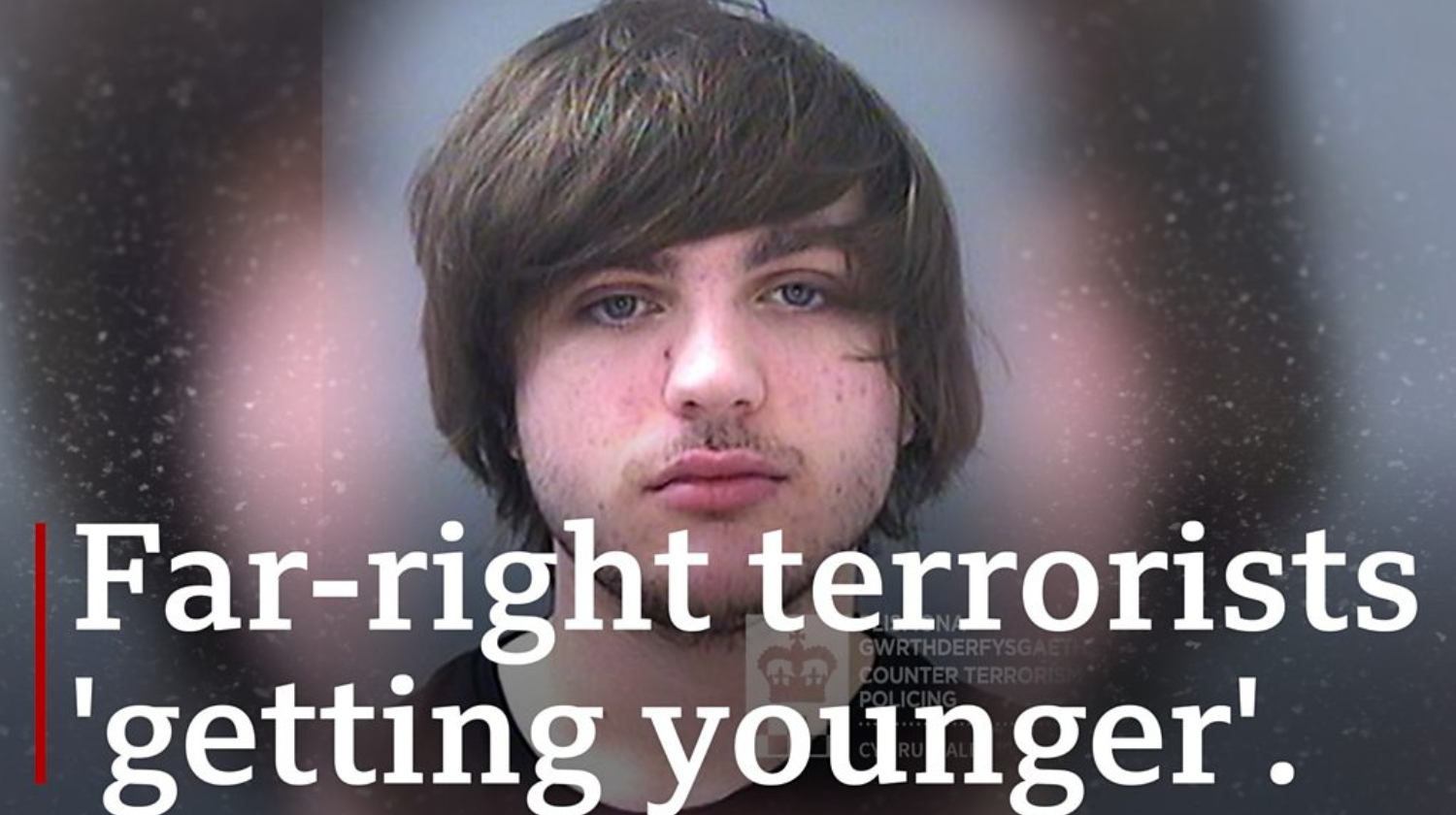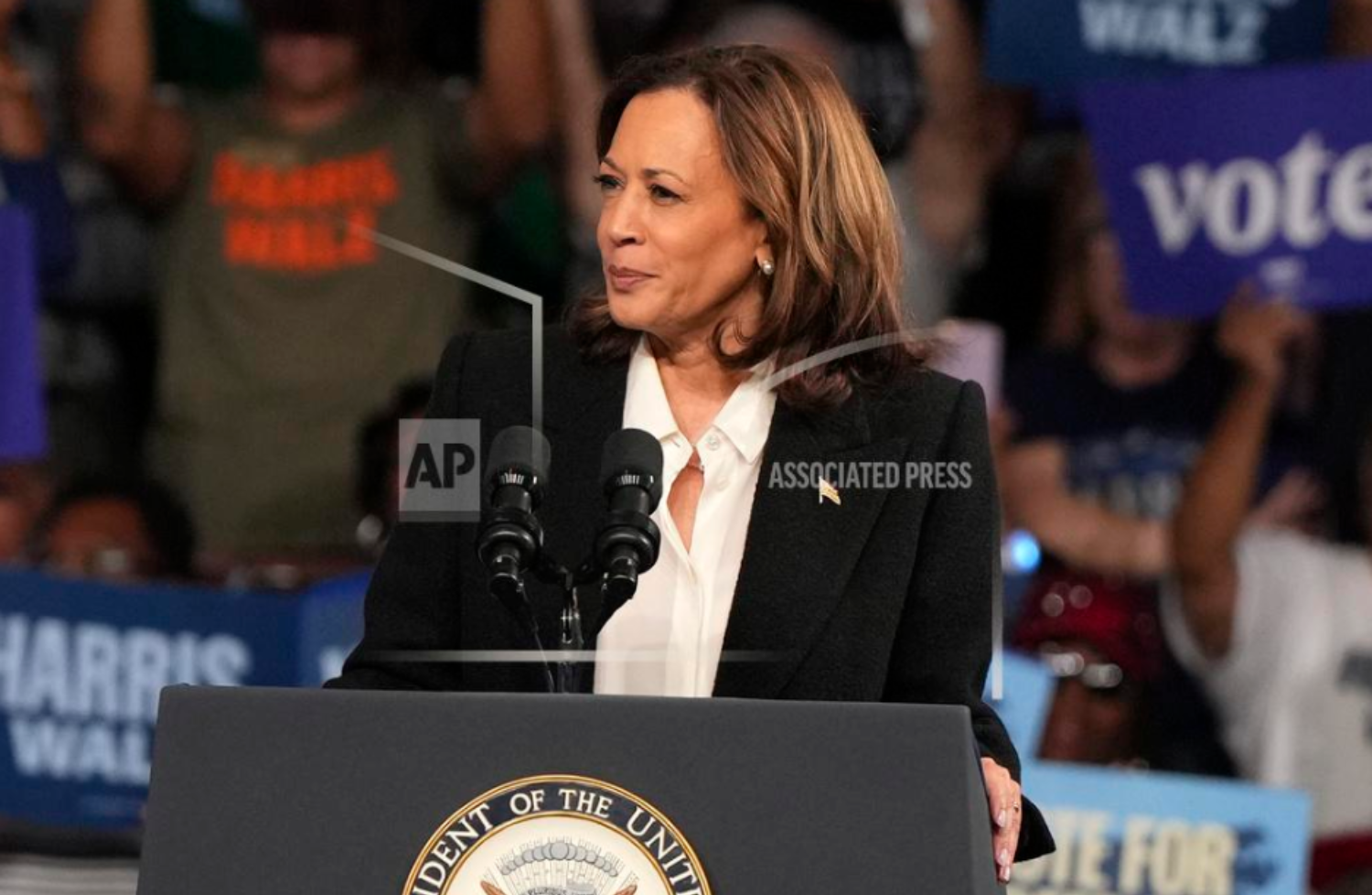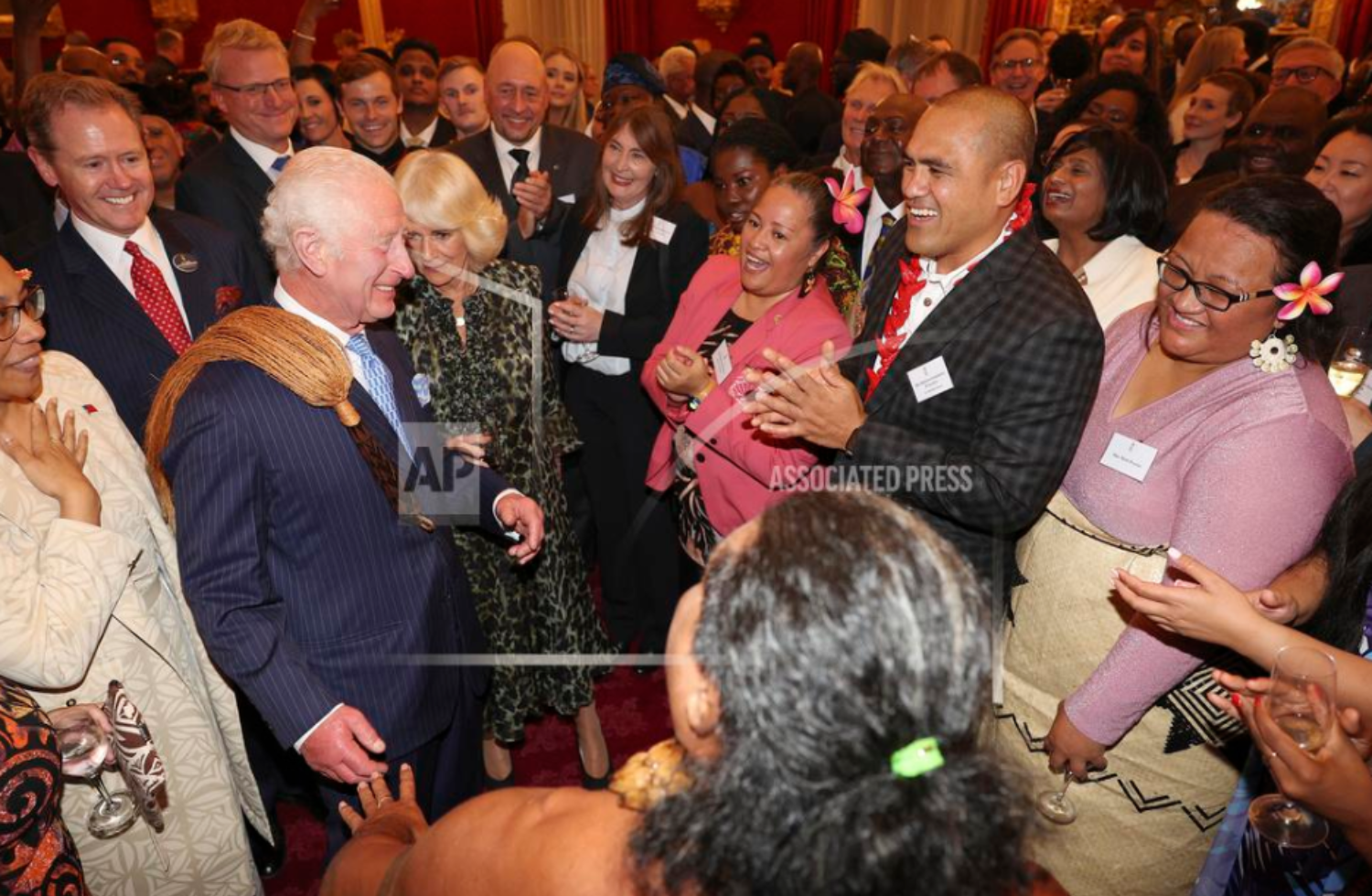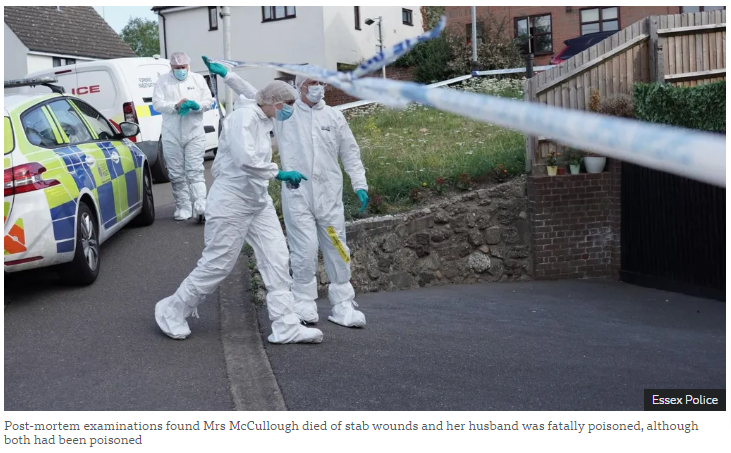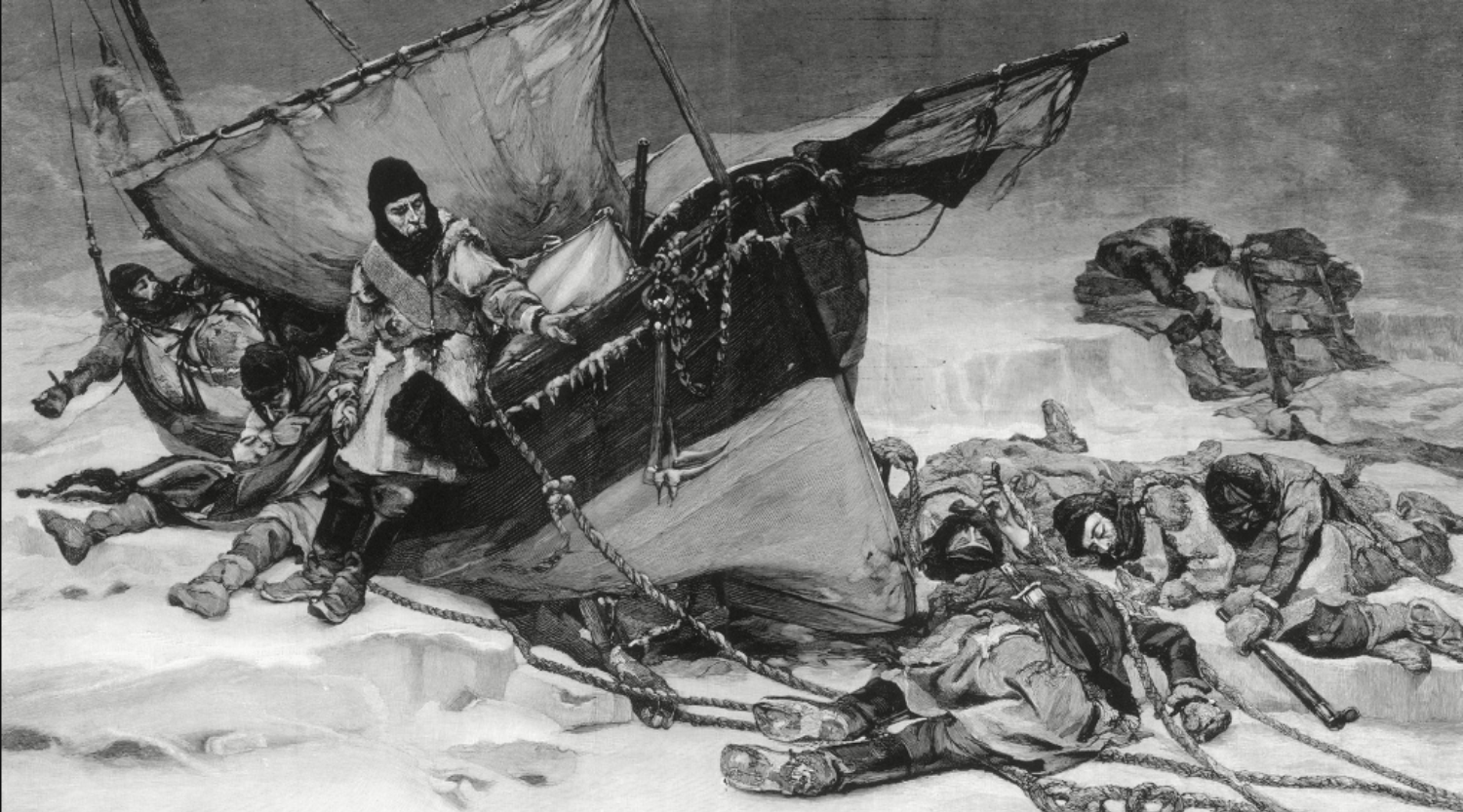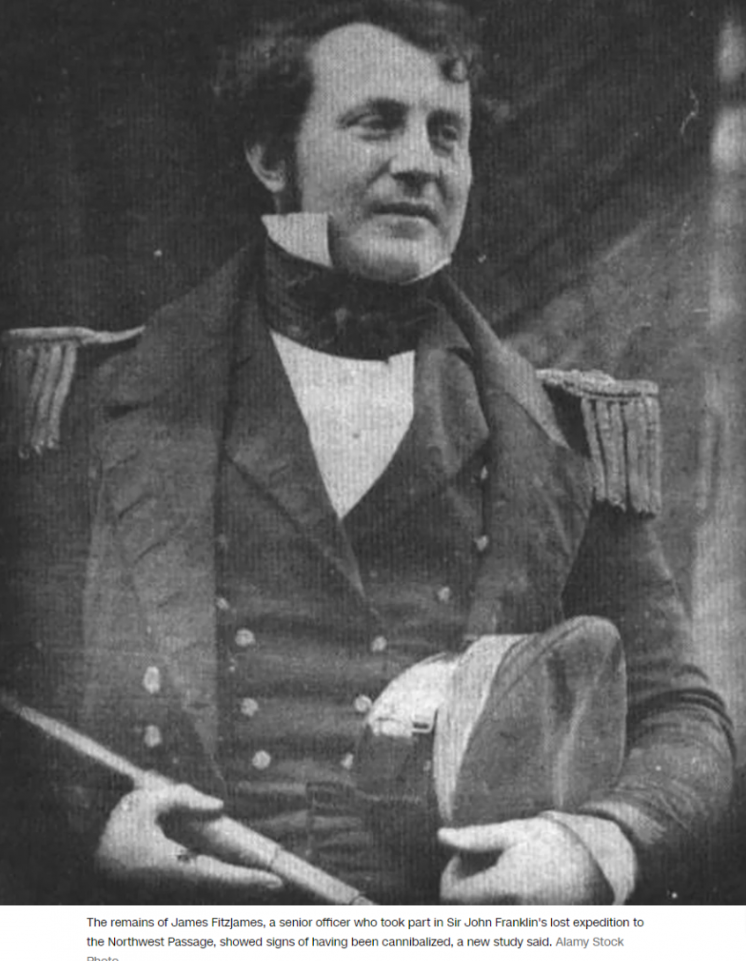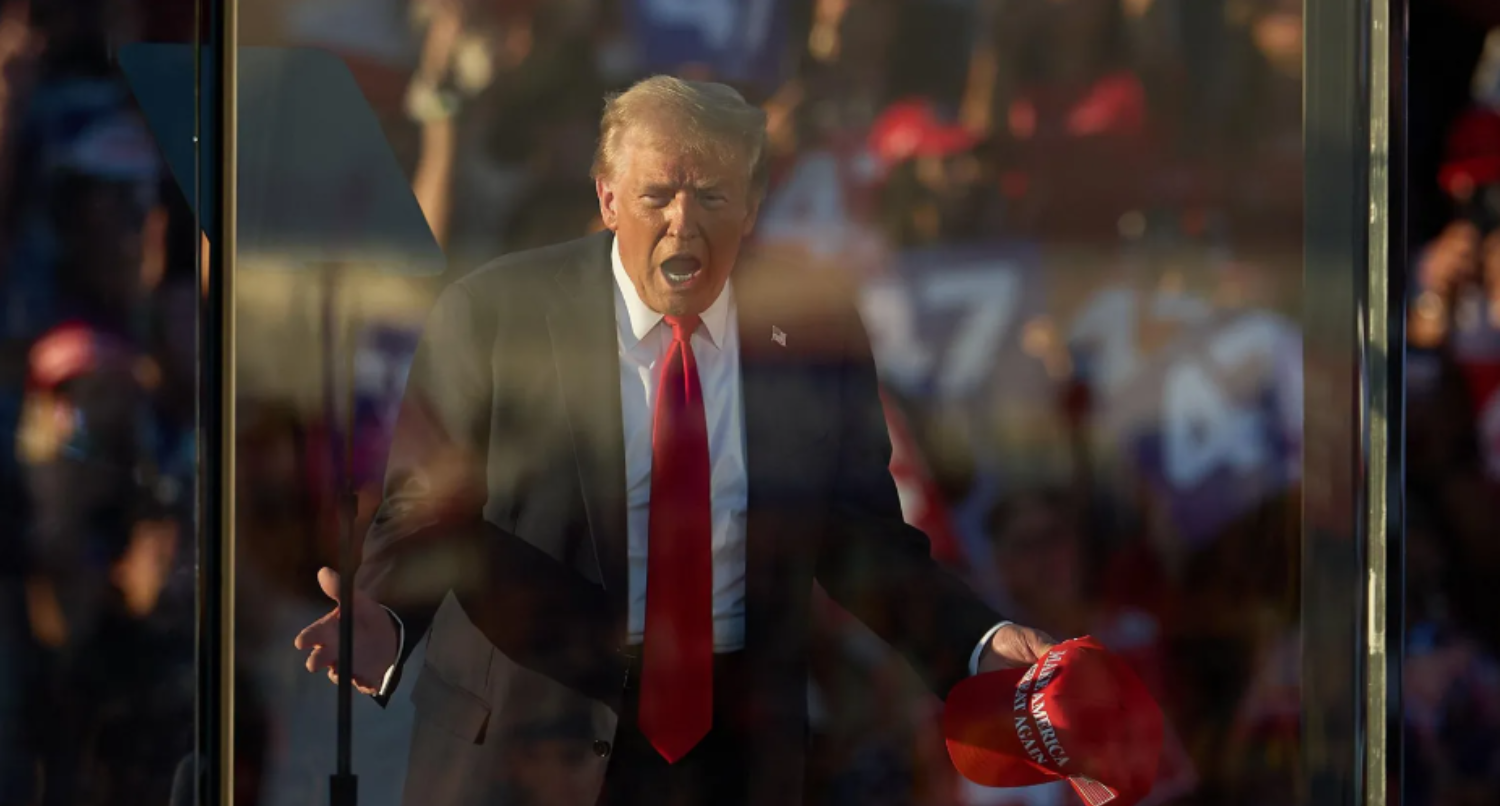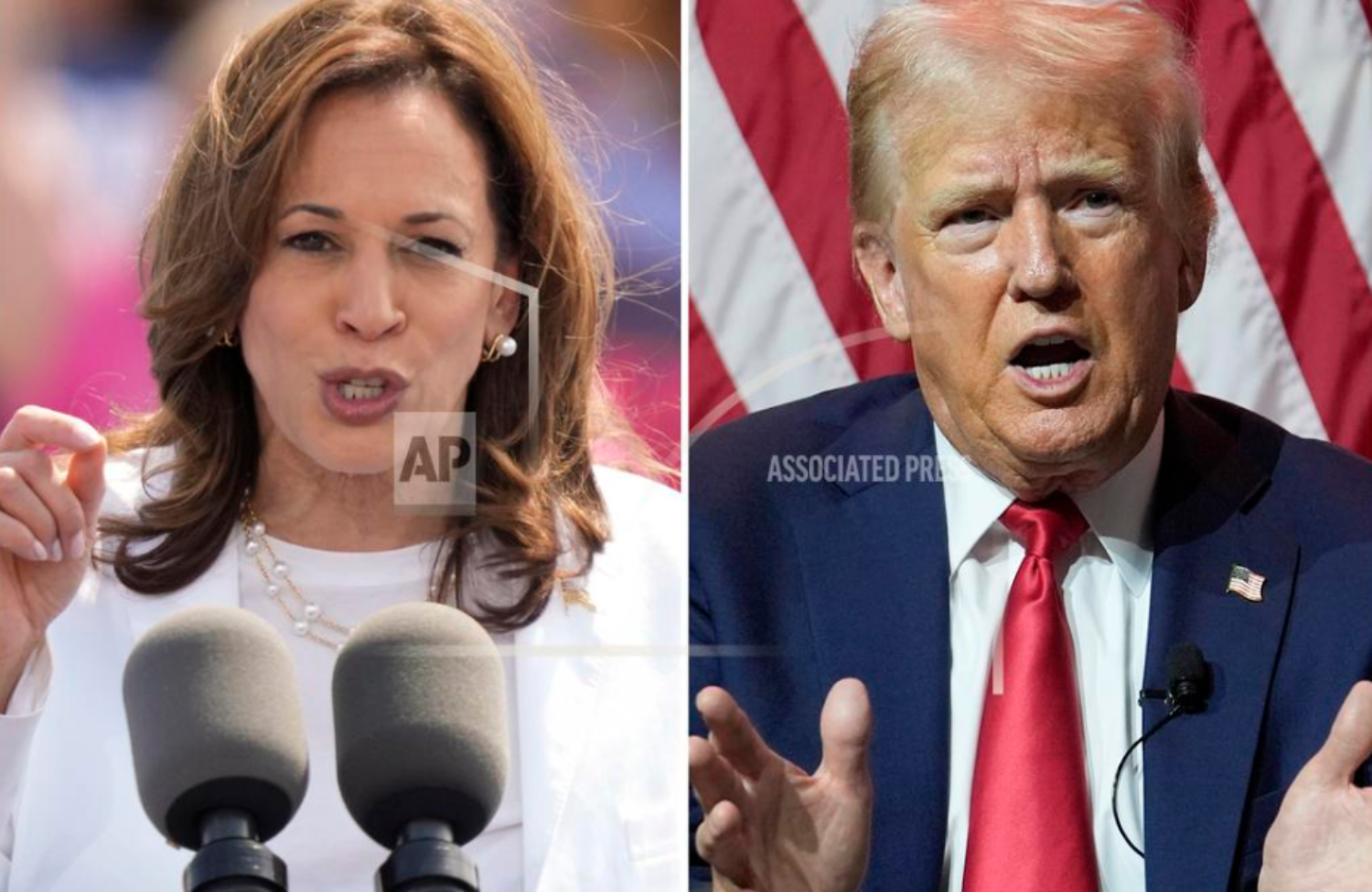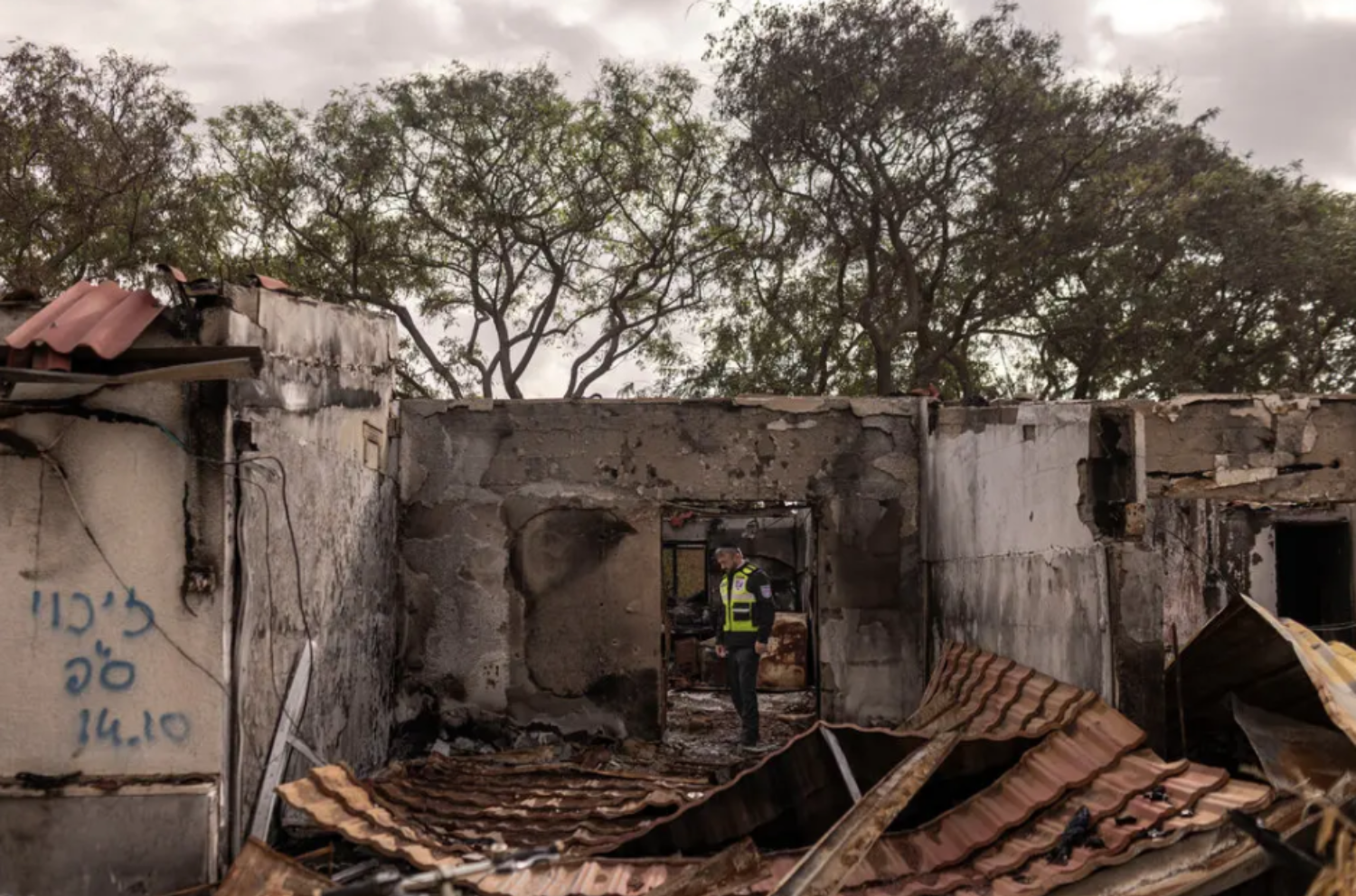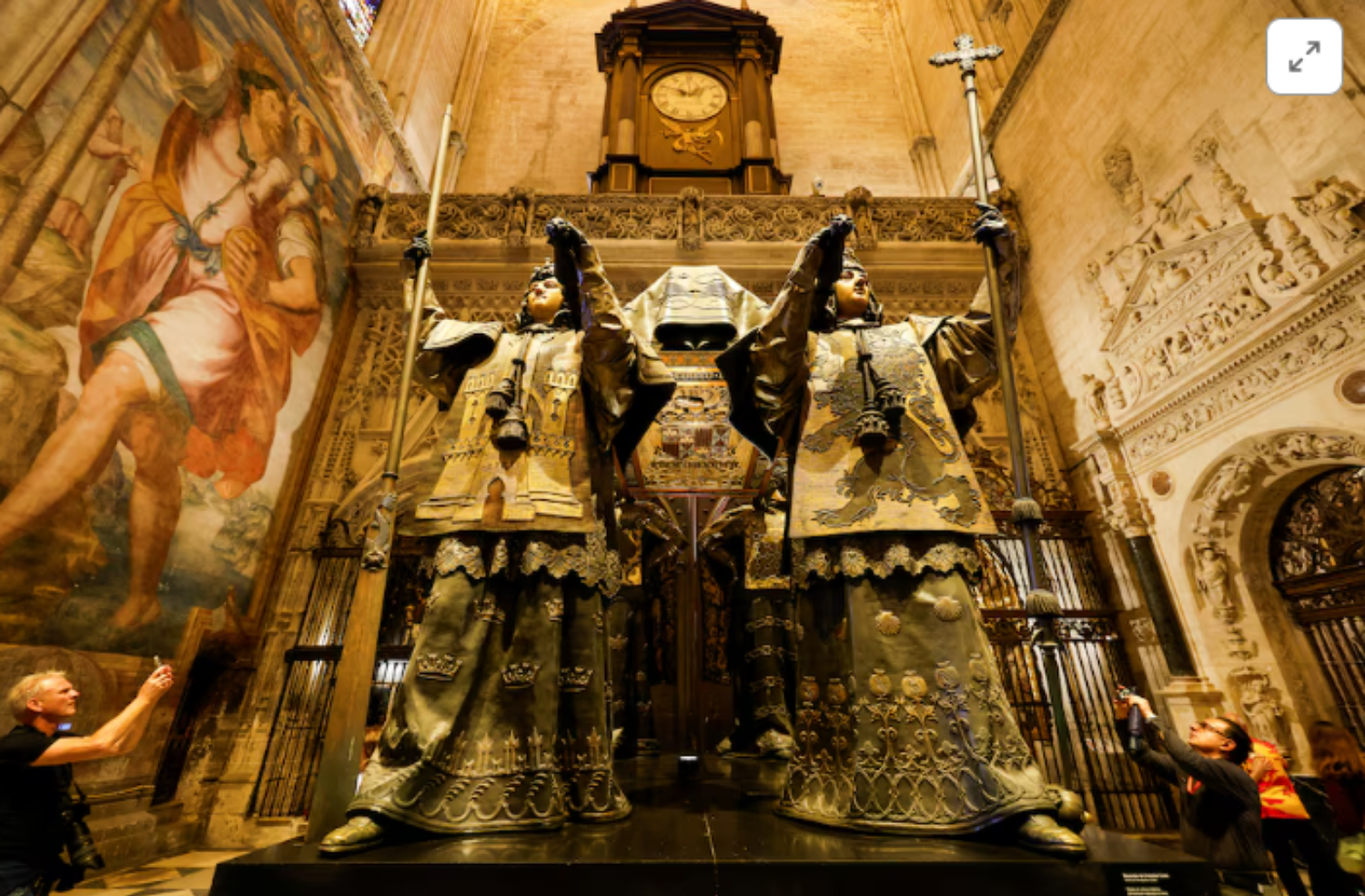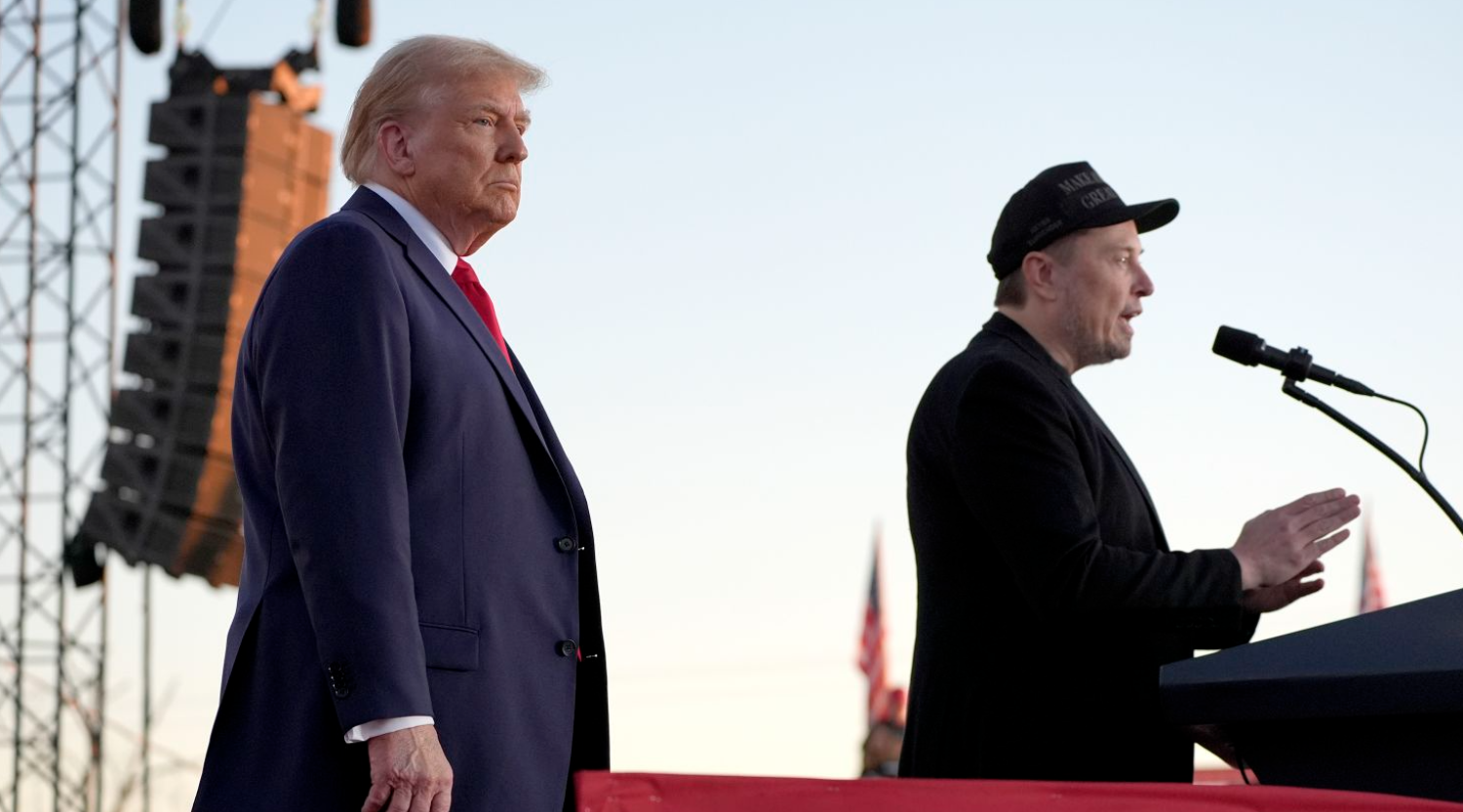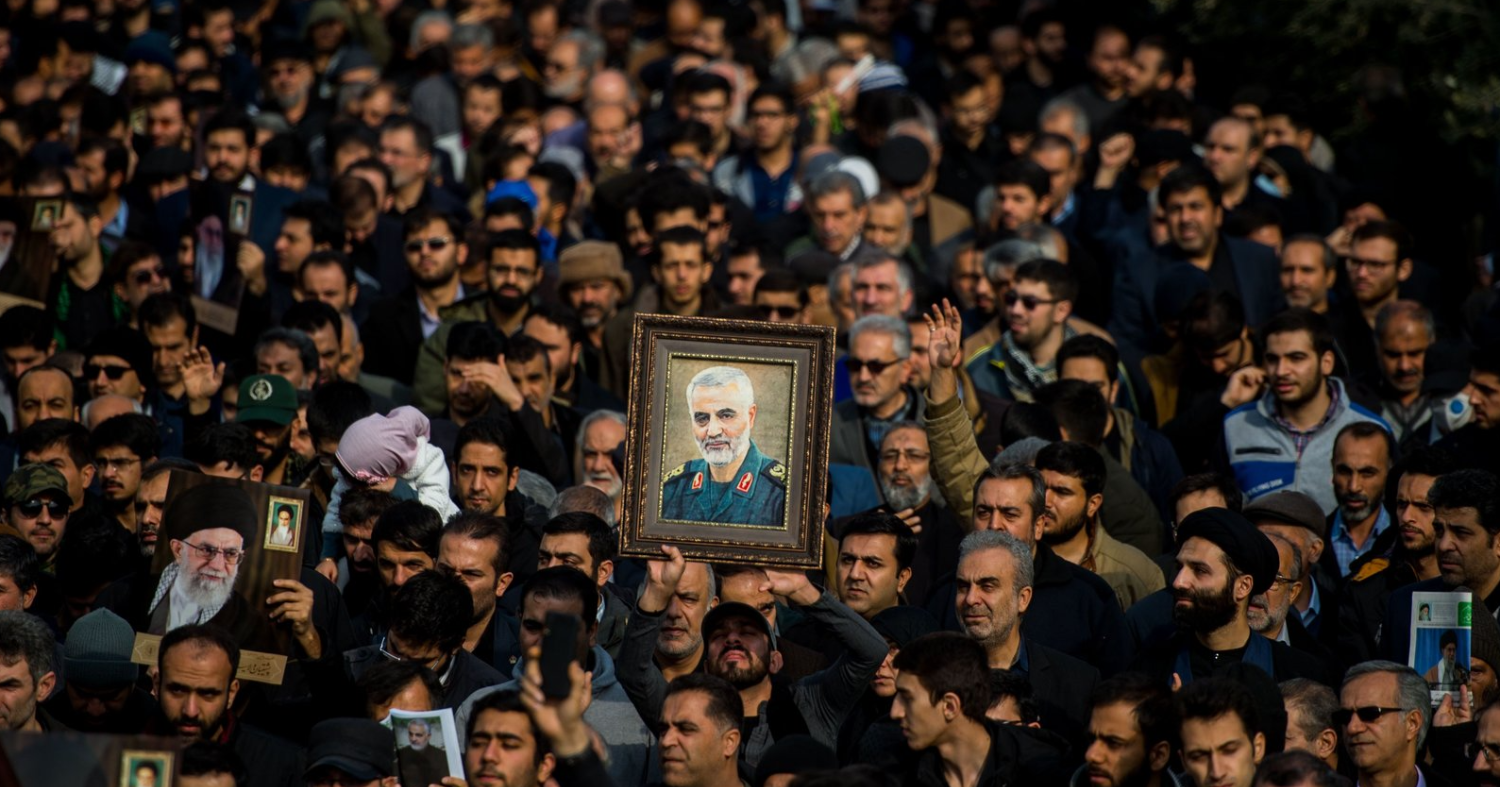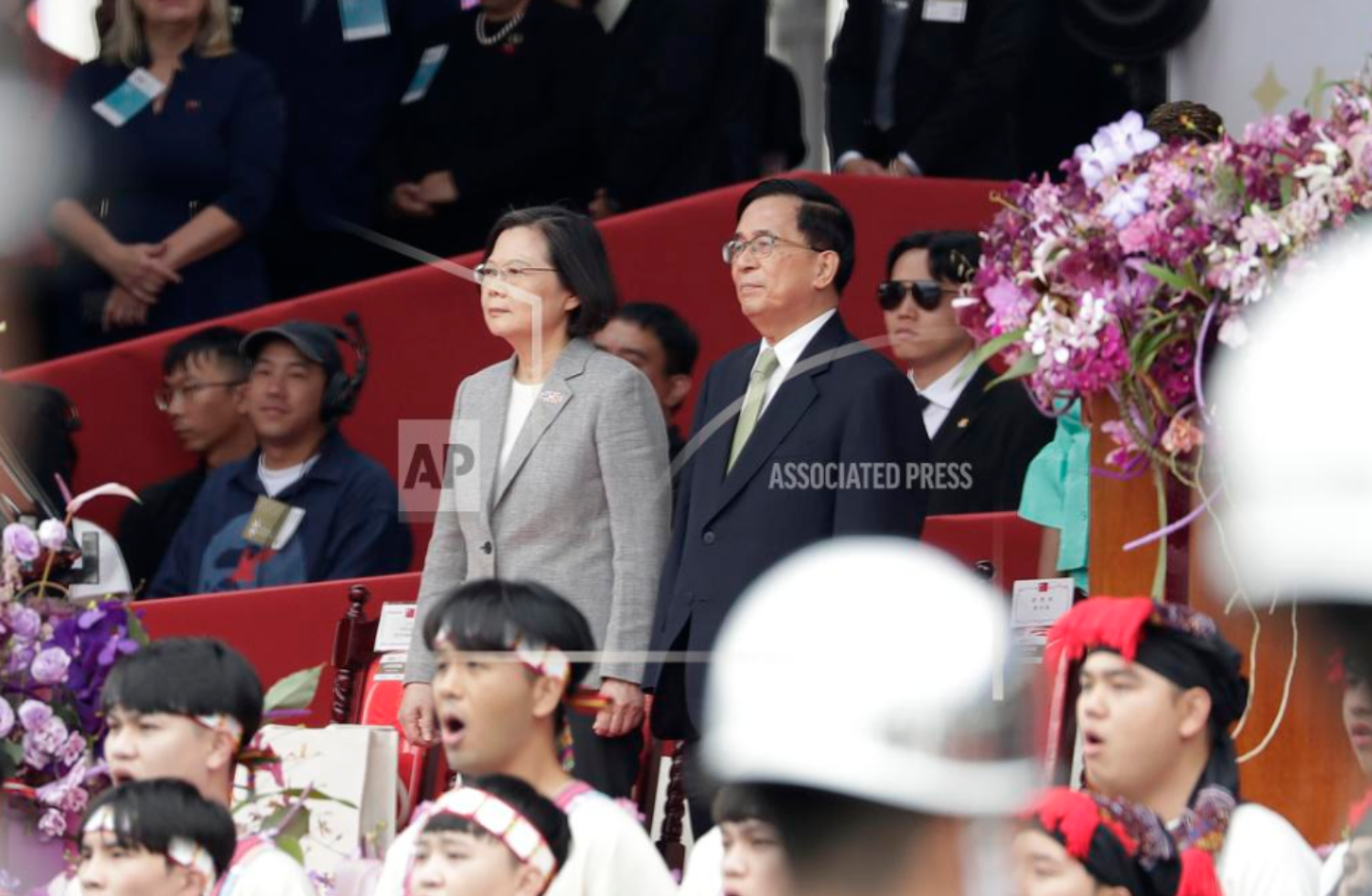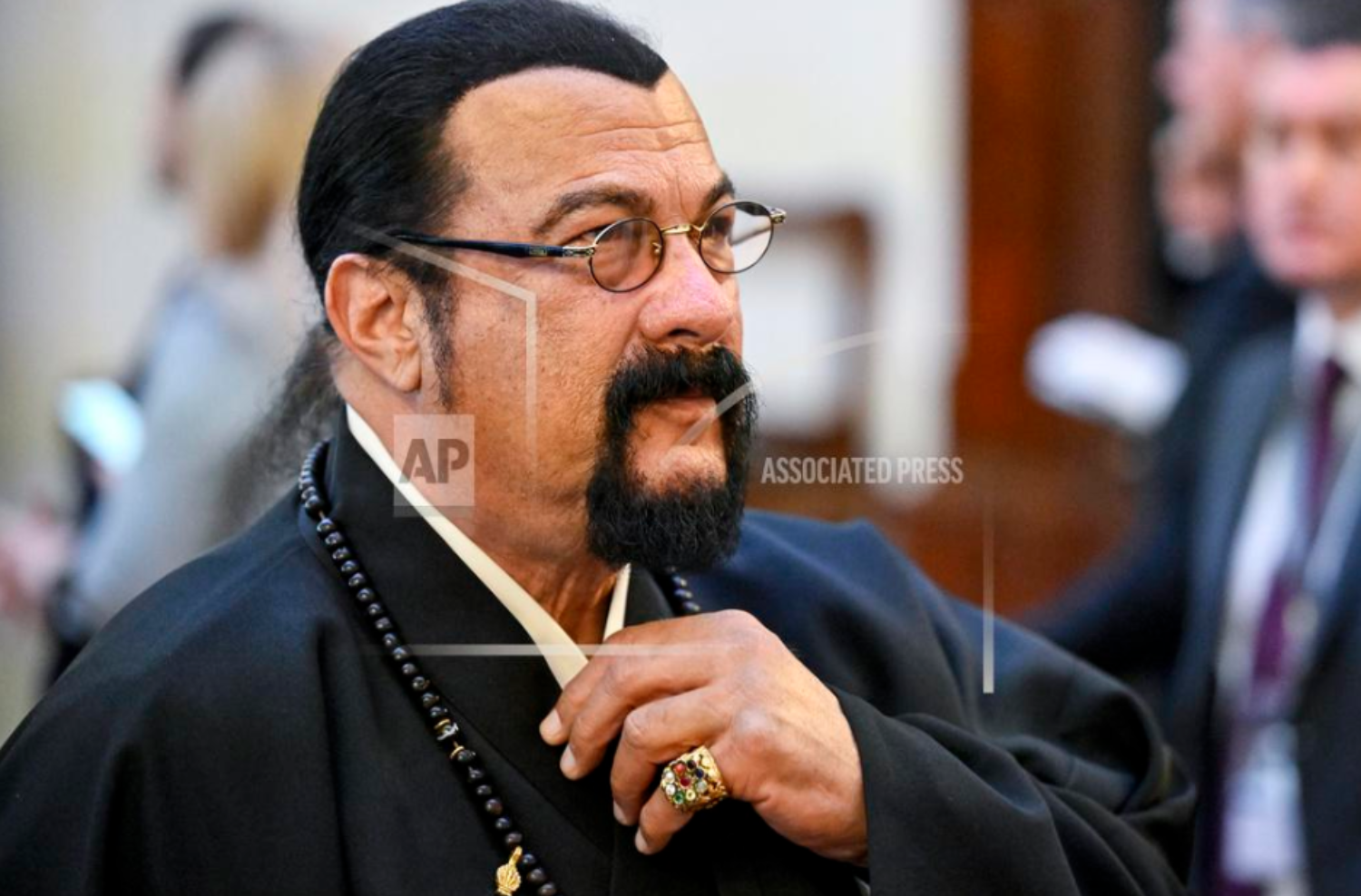-
Posts
10,807 -
Joined
-
Last visited
Content Type
Events
Forums
Downloads
Quizzes
Gallery
Blogs
Everything posted by Social Media
-
Despite the United Nations' long-standing efforts to maintain peace in southern Lebanon, a recently discovered Hezbollah tunnel near a UN base has raised concerns about the efficacy of these peacekeeping missions. The Israeli Defense Forces (IDF) revealed that Hezbollah, the militant group active in the region, has built tunnels within just 100 meters of UN peacekeeping forces, suggesting the group is using UN personnel as "human shields." The situation has ignited tensions, with Israeli Prime Minister Benjamin Netanyahu ordering the immediate withdrawal of UN forces, claiming their proximity to Hezbollah activities compromises their neutrality and safety. During a visit to the area, Israeli officer Olivier Rafowizc confirmed that the IDF had urged UN peacekeepers to evacuate due to the heightened risks of staying in such a volatile region. General Norkin acknowledged the recent injuries sustained by UN personnel in clashes, but highlighted the difficulties of operating in areas where Hezbollah militants use UN bases as shields. “When a tank or another IDF force sees Hezbollah is about to act against us, we fire back,” Norkin said, stressing the complexities of engaging an enemy operating so close to international forces. Hezbollah’s operations in southern Lebanon are reportedly aimed at an ultimate goal of "conquering" the Galilee region in northern Israel. Over the past few days, the IDF has reported a spike in Hezbollah attacks near UN positions, with missiles launched just meters away from peacekeeping posts. Nadav Shoshani, a spokesman for the IDF, detailed how Hezbollah has deliberately positioned its weapons in close proximity to UN bases, putting both UN personnel and civilians at risk. In one recent incident, 25 soldiers were injured in a planned Hezbollah attack near a UN base. The IDF later released footage showing thousands of weapons and missiles hidden inside civilian homes, further complicating the situation. According to General Norkin, Hezbollah’s arsenal, which includes long-range missiles and other sophisticated weapons, has been smuggled into Lebanon from countries like North Korea, Russia, and Iran. Iran, in particular, has been supplying Hezbollah with weapons through Syria since the 2006 war with Israel. The discovery of these tunnels and Hezbollah’s proximity to UN peacekeepers cast doubt on the effectiveness of the UN’s mission in southern Lebanon. While the UN’s mandate is to maintain peace and stability, Hezbollah’s growing infrastructure and the threat of escalating conflict suggest that peace in the region may be more fragile than it appears. As tensions rise, the role of UN peacekeepers is coming under increasing scrutiny, with calls for better monitoring and stronger action to prevent militant groups from exploiting their presence. Based on a report from The Daily Telegraph 2024-10-16
-
In a significant move, the United States is sending a highly advanced missile defense system, the Terminal High Altitude Area Defense (THAAD), along with 100 U.S. troops to Israel. This deployment, the first major one since the Gaza war began, reflects Washington’s deepening involvement in the ongoing conflict, just weeks before the U.S. presidential election. The mission underscores rising concerns in the U.S. administration about an imminent Israeli assault on Iran, potentially widening the conflict across the region. The decision to deploy THAAD to Israel is seen as a precautionary measure in light of expected Iranian retaliation. According to Aaron David Miller, a Middle East expert and former advisor to both Republican and Democratic administrations, the U.S. anticipates Israel’s offensive will be comprehensive enough to provoke an Iranian response. The United States has already supplied Israel with more than 50,000 tons of armaments and military supplies since the conflict reignited in October, signaling strong military support for its ally. Tensions have intensified since Israel's assassination of senior figures from Iran, Hamas, and Hezbollah, which prompted Iran to launch a missile barrage against Israel on October 1. Although the attack inflicted minimal damage and resulted in no Israeli fatalities, it revealed vulnerabilities in Israel's missile defense network, as some missiles managed to reach Israeli soil. Israel's Defense Minister Yoav Gallant has promised a severe and unexpected retaliation against Iran, stating, “Our strike will be powerful, precise, and above all — surprising.” Compounding the tension, an Iranian-backed Hezbollah drone struck an Israeli Defense Forces (IDF) base in northern Israel, killing four soldiers. This highlighted gaps in Israel’s air defense capabilities, which the newly deployed U.S. THAAD system is expected to address. According to Pentagon spokesman Pat Ryder, the move “underscores the United States’ ironclad commitment to the defense of Israel, and to defend Americans in Israel, from any further ballistic missile attacks by Iran.” However, this decision comes with significant risks. The deployment of U.S. troops so close to an expected Israeli military action against Iran could endanger American personnel. If Iranian missiles or pro-Iranian militias target U.S. soldiers, the Biden administration may be forced to retaliate against Iran, drawing the U.S. further into the conflict. Miller warned, “If Iranian missiles hit a U.S. soldier or pro-Iranian militias in Iraq or Syria kill or wound U.S. personnel, there’s a high probability that the U.S. would take kinetic action against Iran.” The deployment of the THAAD system, while effective in countering ballistic missiles, does not fully safeguard against other threats, particularly drones, which have already penetrated Israeli bases in recent attacks. Despite the system’s capabilities, the risk to U.S. troops stationed in Israeli bases remains significant. Domestically, the U.S. role in the Israel-Gaza conflict has become a contentious issue, especially in the lead-up to the 2024 presidential election. While both Vice President Kamala Harris and former President Donald Trump have expressed strong support for Israel, the Democratic Party is divided. Younger voters and Arab Americans have criticized the Biden administration for continuing arms supplies to Israel amid the humanitarian crisis in Gaza, where over 42,000 people have been killed. Republicans, on the other hand, have attacked the administration for its cautious criticism of Israel’s military tactics, particularly following Hamas’s deadly October 7 attack on Israel, which left 1,200 people dead and more than 250 taken hostage. As the conflict escalates, the deployment of U.S. troops and the THAAD system demonstrates that the U.S. is not merely an observer but is becoming increasingly entangled in the Middle East’s volatile dynamics. With U.S. personnel now in harm’s way, the stakes for the Biden administration—and for the broader region—are higher than ever. Based on a report from the WP 2024-10-15
-
Recent shifts in voter registration have raised concerns for Vice President Kamala Harris as the 2024 presidential election approaches. In three critical battleground states—Pennsylvania, North Carolina, and Nevada—the Democratic voter registration advantage has notably diminished, signaling potential challenges for Harris. Experts attribute the decline to a lack of enthusiasm surrounding the Biden administration and the Democratic Party in general. The situation is especially stark in Pennsylvania and North Carolina, where the number of registered Democrats has significantly decreased. Pennsylvania has seen its Democratic voter registration edge fall by nearly half from the 2020 election. “Democrats are down about 300,000 voters, and Republicans are up about 70,000," said Berwood Yost, director of the Center for Opinion Research at Franklin & Marshall College in Pennsylvania. Yost suggests that this decline is driven by widespread disenchantment with the current administration, adding, "People feel really negatively about the Biden presidency." David Paleologos, director of the Political Research Center at Suffolk University, also noted the drastic shift in North Carolina, where the Democrats’ voter registration advantage has been slashed from a 393,000 lead in 2020 to only 130,000 in 2024. He pointed out that despite the initial advantage Democrats held in 2020, Donald Trump still carried the state. With an even smaller margin now, Paleologos believes Trump is well-positioned to widen his lead. Particularly concerning for Harris is Arizona, another key battleground state. In 2020, President Biden narrowly won the state, but Republicans have since significantly increased their voter registration advantage. Constantin Querard, an Arizona-based Republican strategist, credits GOP officials for focusing on expanding their base. Since 2020, the Republican voter registration advantage in Arizona has doubled, growing from 130,000 to 259,000. Querard noted, "The Republican brand is doing better than the Democratic brand." This shift was reflected in a September poll showing Trump with a 6-point lead over Harris in the state. However, it’s not all bad news for the Harris campaign. In Nevada, despite a shrinking Democratic registration advantage, Harris still leads Trump in polling averages. Experts like Jon Ralston, CEO of The Nevada Independent, caution that while Democrats have seen their voter edge decline, the rise in independent and unaffiliated voters may play a pivotal role in the outcome. Ralston described the shifting voter registration numbers in Nevada as “a concern for Dems,” but added that it remains a tight race. Democratic strategists in Pennsylvania and North Carolina acknowledge the erosion of their voter registration advantage but argue that it may not fully reflect voting behavior. Many registered Democrats who have been voting for Republicans for years are only now switching their party affiliation. J.J. Balaban, a Democratic strategist, contends that the changes in registration "don’t indicate much about how voting in Pennsylvania will change in 2024." Moreover, in North Carolina, Democratic strategist Morgan Jackson pointed out that younger voters, who are more likely to support Harris, are increasingly registering as unaffiliated. Jackson believes this shift is due to dissatisfaction with both major political parties, noting, “Both national party brands are in the crapper with voters.” He also emphasized that most unaffiliated voters tend to align with one party over the other, suggesting that Harris could still benefit from this group. In conclusion, while the decline in Democratic voter registration in key battleground states raises red flags for Harris, the race is far from decided. Factors such as unaffiliated voters, changing voter affiliations, and shifts in local dynamics make it clear that both candidates face a tight and unpredictable contest as the 2024 election draws closer. Based on a report from The Hill 2024-10-15
-
Keir Starmer faces a delicate challenge as he navigates between the demands of big business and the needs of working people. With the Labour government marking its first 100 days, Starmer is set to relaunch his central mission: restoring economic growth. This effort coincides with an international investment summit in London, where some of the world’s most powerful financiers, including those from Goldman Sachs, BlackRock, and Google, will be in attendance. However, divisions within Starmer’s cabinet and the broader Labour party reveal a deeper tension about how best to achieve growth. One of the key sources of internal conflict stems from the ousting of Transport Secretary Louise Haigh, who described P&O Ferries as a “rogue operator” after the company’s controversial practices. This decision highlights the underlying dilemma in Labour’s economic strategy, where growth must be balanced with ensuring the proceeds are more evenly distributed. The prime minister will be looking to secure the backing of major global companies at the summit as he strives to make the UK’s economy the fastest-growing in the G7. This focus on wooing big business comes at a time when the country’s public finances are strained. With a difficult budget on the horizon for Chancellor Rachel Reeves, Starmer’s courtship of business leaders may be necessary to stimulate investment. Most economists agree that boosting business investment is critical to enhancing productivity and fostering economic growth—an area in which the UK has lagged behind its G7 counterparts, particularly since the 2008 financial crisis. However, not all within Labour are comfortable with the involvement of certain companies. Some firms attending the summit, such as DP World, the owner of P&O Ferries, and Macquarie, an Australian firm known as the “vampire kangaroo” for its controversial business practices, have been criticized for perpetuating inequality. Even if these companies invest in the UK, the question remains: will the benefits be distributed fairly? Adding to the complexity, Starmer has expressed a willingness to eliminate red tape and regulations that hinder investment, which could further stoke concerns about Labour’s stance. While some businesses are encouraged by the government’s openness, others remain cautious, particularly ahead of Reeves’ budget, which may target wealthier individuals and corporations with higher taxes. Employers are also wary of potential increases in national insurance contributions. In contrast, Starmer recently touted Labour’s “new deal” for working people as the most significant upgrade in workers’ rights in a generation. Although some business leaders criticized this initiative as an anti-growth move, the prime minister sees it as essential, given the rise of zero-hours contracts, stagnant wages, and growing in-work poverty over the past decade. Labour’s approach includes working alongside the private sector through the National Wealth Fund and GB Energy, co-investing to leverage private funds and ensuring the state shares in the gains of economic growth. Despite his criticisms of excessive regulation, Starmer’s government recognizes that unchecked capitalism is not the answer. Ultimately, Starmer’s mission to grow the economy while promoting fairness is a tricky balancing act. As he welcomes big business to London, the prime minister faces the challenge of securing investment without alienating those concerned about inequality and workers’ rights. Whether he can successfully walk this fine line remains to be seen. Based on a report from The Guardian 2024-10-15
-
The volatile dynamic between Oasis brothers Liam and Noel Gallagher became the subject of a "Saturday Night Live" sketch, which recently drew the ire of Liam Gallagher himself. In a humorous take on the duo's infamous relationship, SNL cast member Sarah Sherman portrayed Liam, while James Austin Johnson took on the role of Noel. However, after the sketch aired, Liam didn't hold back his thoughts on the impersonation. A fan asked the Oasis frontman on X (formerly Twitter) if he had seen the sketch, to which Liam sarcastically responded, “Are they meant to be comedians?” His pointed remark made it clear that he wasn't amused by the SNL portrayal of himself and his brother. Based on a report from The Daily Beast | X 2024-10-15
-
The fragile peace on the Korean Peninsula faces renewed strain as North Korea issued a stern warning on Sunday, declaring that its front-line military units are ready to launch strikes on South Korea. This escalation follows accusations from Pyongyang that South Korea sent drones and dropped leaflets over its capital. South Korea, while not confirming the deployment of drones, has responded by stating that any threat to its citizens would be met with strict consequences. On Friday, North Korea accused South Korea of flying drones over Pyongyang and dropping propaganda leaflets on three separate occasions in recent weeks. The North warned that it would retaliate with force should these activities continue. In a Sunday statement broadcast through state media, the North’s Defense Ministry revealed that it had issued operational orders to artillery and army units near the border to prepare for immediate strikes. An unidentified spokesperson explained that military units had been told to get ready to strike at any enemy targets if South Korean drones crossed the border again. The statement underscored the severity of the current situation, warning that if South Korea continued these actions, conflict could erupt on the peninsula. The spokesperson further raised the stakes by threatening that South Korea could be reduced to "piles of ashes" if North Korea responded with full force. Adding to the hostile rhetoric, Kim Yo Jong, the influential sister of North Korean leader Kim Jong Un, dismissed South Korea’s warnings of retaliation as "suicidal." The South Korean Defense Ministry had reportedly warned that any harm to its citizens would lead to the end of North Korea’s regime. Kim Yo Jong responded with a stark message: if another South Korean drone was detected, it would certainly trigger a "horrible disaster." North Korea is no stranger to fiery language, particularly during periods of heightened tension with South Korea and the United States. Relations between the Koreas have been particularly strained since 2019, when U.S.-led efforts to negotiate an end to North Korea’s nuclear program collapsed. Since then, North Korea has been focused on expanding its nuclear capabilities and has made repeated threats to use those weapons against South Korea and the U.S. Despite these threats, experts believe a large-scale attack is unlikely, as North Korea’s military remains significantly weaker than the combined forces of the U.S. and South Korea. With the U.S. presidential election approaching next month, many analysts believe that North Korea may be ramping up tensions in an effort to strengthen its hand in any future negotiations with the United States. The regime has historically used threats and provocations as leverage in diplomatic talks. The current dispute follows a broader trend of escalating actions between the two Koreas. Since May, North Korea has launched thousands of balloons filled with rubbish into South Korean territory in retaliation for activists in the South who sent anti-Pyongyang leaflets across the border. In response to this, South Korea restarted its border loudspeakers to broadcast propaganda and K-pop music into North Korea, a tactic designed to agitate the regime. North Korea has long been sensitive to criticism, particularly when it comes to its leadership under Kim Jong Un and the Kim family’s dynastic rule. The latest developments indicate a troubling escalation in hostilities, with both sides trading threats and preparing for potential conflict. While North Korea’s aggressive rhetoric and military posturing are often dismissed as attempts to maintain leverage, the risk of miscalculation on both sides remains. The situation on the Korean Peninsula continues to be volatile, with the potential for even minor provocations to spiral into larger confrontations. Based on a report from Politico 2024-10-15
-
The sanctity of international law has become increasingly compromised in recent years, as many have begun to demonize Israel, drawing false equivalencies between Israel and Hamas. Carl von Clausewitz, the 19th-century military strategist, famously said that war is the continuation of politics by other means. If he lived today, he might say that law, not war, has become the new battleground. In this modern era, armed conflicts are fought not only on the battlefield and on screens, but also in the courtroom, where legal principles are increasingly bent to serve political ends. Hamas learned early on how to manipulate the media, understanding that modern warfare is as much about narrative as it is about force. When Hamas carried out the brutal attacks on Israel on October 7, it wasn’t just a medieval-style atrocity brought into the digital age; it was a carefully staged media event. Alongside this, Israel has had to defend itself in the International Criminal Court (ICC), where legal proceedings are shaping international perceptions. In May, the ICC prosecutor, Karim Khan KC, requested arrest warrants not just for Hamas leaders Yahya Sinwar and Ismail Haniyeh but also for Israel’s Prime Minister Benjamin Netanyahu and Defense Minister Yoav Gallant. The decision was both legally flawed and morally outrageous. Israel, under international law, had the right to take action to ensure the protection of its citizens from further atrocities. Hamas, by embedding its military operations within Gaza's civilian population, bears responsibility for the tragic loss of life that ensued. Every civilian death is a tragedy, but the responsibility lies with Hamas for using civilians as shields. What remains puzzling is the delayed issuance of these arrest warrants. Given the immediate and public nature of Hamas’s crimes on October 7, the fact that warrants for Hamas leaders weren’t promptly issued raises concerns. The timing makes it appear that Israel, not Hamas, was the real target. The eventual inclusion of Hamas in the warrants feels like an afterthought, merely to maintain an illusion of balance. Another critical aspect of this legal struggle is the principle of complementarity, which dictates that the ICC should only intervene when a country lacks an independent judiciary capable of addressing legal matters. Israel has one of the world’s most robust legal systems, as evidenced by the fact that former high-ranking officials, including a Prime Minister, President, and Chief Rabbi, have all served prison time. Yet this fact was ignored by the ICC prosecutor in pursuing charges against Israeli leaders. The United Kingdom initially challenged the ICC’s jurisdiction over this case, but following the election of Keir Starmer’s government, the UK reversed course, claiming that it was a matter for the court to decide. This decision was not based on sound legal reasoning but rather on political calculus, likely influenced by the loss of seats to pro-Gaza independent candidates. The move to leave Germany and other nations to lead the legal challenge against the ICC’s jurisdiction shows the extent to which international law has become politicized. In a parallel legal battle, Israel is defending itself at the International Court of Justice (ICJ) in a case brought by South Africa. The ICJ’s provisional ruling in January led to accusations of genocide against Israel, a charge that has since been widely repeated. However, the ICJ did not determine that genocide was occurring; it merely stated that the Palestinians had a plausible right to protection from genocide. This legal distinction, though critical, was overlooked by much of the media and even by prominent legal experts. Misinterpretations, such as a letter from four retired UK Supreme Court justices claiming there was a plausible risk of genocide, have only fueled the misinformed rhetoric. The international legal system is facing significant challenges, particularly in its ability to address non-state actors like Hamas, which operate with the backing of state sponsors. But there also seems to be a reflexive tendency to view Israel’s actions as unlawful, even before fully understanding the specifics. From targeted assassinations and missile strikes to cyber warfare and security measures, Israel's efforts to defend itself are often met with condemnation without realistic alternatives being offered. In one conversation, when asked how Israel should protect itself under international law, the suggestion of compromise was raised. Yet, as Hamas and other groups openly call for the destruction of Israel, the idea of a “middle ground” seems both absurd and dangerous. As legal experts continue to critique Israel’s actions, what remains absent is a clear solution to prevent future attacks like those on October 7. International law, increasingly used as a political tool, risks losing its credibility if it continues to be manipulated to target Israel disproportionately while ignoring the reality of terrorism. The world must navigate these legal challenges carefully, ensuring that justice is upheld without eroding the foundational principles of the international legal order. Based on a report from The Daily Telegraph 2024-10-15
-
Teenagers as young as 13 are increasingly coming under suspicion for engaging in far-right terrorism, driven by exposure to toxic online extremism. Experts warn that the easily accessible nature of extremist content is creating a dangerous environment for children. Described as a “horrible hateful soup” by insiders, social media platforms allow young users to pick and choose from various terrorist narratives, including content from the Terrorgram network, a group of white supremacist channels recently banned in the UK. Ken McCallum, the head of MI5, recently revealed that 13% of those being investigated for terrorism in the UK are under 18, a figure that has tripled in the last three years. This rise poses challenges for law enforcement and intelligence agencies, raising ethical questions about whether teenagers should face criminal prosecution, especially when issues of mental health and grooming are involved. Hannah Rose, an analyst with the Institute of Strategic Dialogue, noted that extremist ecosystems online have surged over the past few years, remaining easily accessible to children. Rose explained that children’s offline vulnerabilities can make them more susceptible to adopting extremist views. In April, the UK took action by proscribing Terrorgram, a neo-fascist group that coordinated three Telegram channels with over 70,000 subscribers. The Institute of Strategic Dialogue found that these channels presented themselves as news feeds and drew subscribers into group chats where violent content was rampant. Investigators are concerned that children, who may not fully grasp the ideology behind the content, are still highly susceptible to violent influence. Some of this radicalization is believed to have its roots in the COVID-19 pandemic, which forced families and young people to spend more time online. As a result, there has been a blurring of extremist ideas, with some individuals being driven to acts of violence without a clear ideological motive. Rose pointed out that extreme misogyny and school shooter fandoms have also become mainstream in certain online spaces. Some of these communities present violence in an aestheticized manner, using music and graphics, which can make it appear like a computer game and lure in those without strong ideological leanings. Though Terrorgram's content is mainly spread through loose associations of shared material, its influence persists. Two of its alleged American leaders were recently charged with 15 counts of hate crimes and conspiracy to support terrorism, but authorities expect that the network will continue to evolve. The increase in child terror cases, especially within far-right networks, has raised concerns. However, a resurgence in Islamist activity has also been noted. A 15-year-old from Nottingham was recently sentenced to community service for sharing violent Islamic State videos and pledging allegiance to the group online. MI5 has also dealt with cases like a 13-year-old from Cornwall who led the UK branch of the banned neo-Nazi Feuerkrieg Division, a group that was founded by another 13-year-old from Estonia in 2018. Adam Hadley, the executive director of Tech Against Terrorism, noted that job cuts at social media companies, particularly in trust and safety roles, have worsened the problem. Extremist content has become harder to monitor, particularly on platforms like X (formerly Twitter) and Telegram. Telegram’s boss, Pavel Durov, has pledged to improve content moderation following his arrest in France, which was tied to the platform’s use for sharing child sexual abuse materials and drug trafficking. The rise in child terrorism cases has also sparked debate over whether prosecutions are the best approach to dealing with radicalized children. One high-profile case involved Rhianan Rudd, a teenager groomed by a far-right extremist, who later took her own life. Though she was charged with terrorism-related offences, the prosecution was later dropped, and her family argued that she should have been treated as a victim of grooming rather than a terrorist. McCallum acknowledged the complexity of such cases, suggesting that while some individuals may require criminal justice outcomes, others would benefit more from alternative interventions focused on vulnerability. Based on a report from The Guardian 2024-10-15
-
When Kamala Harris refused to seek the death penalty against a gang member accused of killing a police officer nearly two decades ago, she stood firm in her opposition, even under immense pressure. Dianne Feinstein, then a Democratic senator, called for the death penalty at the officer’s funeral, receiving a standing ovation. Yet Harris, only 39 at the time and the first female district attorney in San Francisco, remained steadfast. “There can be no exception to principle,” Harris wrote in a 2004 op-ed, vowing to honor her opposition to capital punishment, regardless of the emotional weight of the case. Just four years later, however, Harris adjusted her stance as she announced her run for California attorney general. Though she personally opposed the death penalty, she pledged to “enforce the death penalty as the law dictates” if elected. This shift in position is just one example of the challenges Harris has faced as she walks the line between a tough-on-crime prosecutor and a progressive politician. Her critics often label her as inconsistent, with Republican Senator JD Vance even calling her “a chameleon.” Supporters, however, argue that Harris is willing to evolve when faced with new evidence. As Brendon Woods, Oakland’s top public defender, put it, “I think people can evolve, and I think that’s what she’s done.” Throughout her career, Harris has had to navigate complex and often contradictory expectations. As attorney general, she advocated for enforcing laws that penalized parents of chronically truant children but later expressed regret, saying that prosecuting parents was never the law’s intention. During her time as California’s top prosecutor, she introduced programs that required body cameras for special agents but stopped short of endorsing statewide regulations. After George Floyd’s murder, she supported independent investigations into police misconduct but had declined to provide such scrutiny for controversial police shootings while serving as attorney general. Critics argue that Harris could have done more to support criminal justice reforms, particularly after high-profile police shootings in Los Angeles and Anaheim, where she chose not to launch independent investigations. Despite the criticism, Harris’s supporters acknowledge her role in shaping laws that now require the attorney general’s involvement in investigating fatal police shootings. As Assemblyman Kevin McCarty, who had once criticized Harris for not doing enough, later said, “I applaud Kamala Harris for helping lay the foundation to make this a reality.” While Harris has faced scrutiny over her changing positions, she maintains that her values have remained consistent. Asked about her shifting stances, she said, “My values have not changed.” Her campaign spokesperson, James Singer, added, “Kamala Harris has fought to protect people and hold bad actors accountable.” Based on a report from CNN 2024-10-15
-
King Charles has reiterated that it is up to the people of Australia to decide whether the country remains a constitutional monarchy or becomes a republic. Ahead of the King's visit to Australia next week, the Australian Republic Movement received a letter from Buckingham Palace officials, clarifying the King’s position on this issue. The correspondence, first reported by the *Daily Mail*, emphasized that "whether Australia becomes a republic" is a decision that lies with the Australian public. While King Charles and Queen Camilla are scheduled for several official events during their visit, including in Sydney and Canberra, the future of the monarchy in Australia is expected to be a recurring topic. The letter sent by the palace restates the long-held stance of the monarchy rather than marking any shift in policy. As a constitutional monarch, King Charles operates based on the advice of his ministers, and decisions about Australia's political future, including its head of state, fall entirely within the purview of its citizens. "His Majesty, as a constitutional monarch, acts on the advice of his Ministers, and whether Australia becomes a republic is therefore a matter for the Australian public to decide," the letter explains. This exchange between the palace and the Australian Republic Movement was described as amicable. The movement had previously requested a meeting with the King during his visit, as they continue to push for Australia to elect its own head of state. "While we respect the role the royals have played in the nation to date, it’s time for Australia to elect a local to serve as our head of state. Someone who can work for Australia full time," said Isaac Jeffrey, a spokesperson for the movement. The campaign, which commends King Charles personally, is opposed to the monarchy's institutional role in Australia. A referendum held in 1999 saw Australians vote to retain the constitutional monarchy. However, with the current government indicating earlier this year that another referendum is "not a priority," the push for a republic remains in limbo. Pro-republic advocates argue that the role of head of state should be filled by someone elected by Australians, not by a monarch from overseas. The visit to Australia, scheduled from October 18 to 26, marks King Charles's most significant international trip since his cancer diagnosis earlier this year. His previous international engagement was in France for D-Day commemorations. While his treatment is expected to be paused during his stay in Australia, he is set to participate in various activities, including reviewing the Australian naval fleet in Sydney harbor, supporting environmental initiatives, and meeting with cancer experts. Following his time in Australia, the King will also attend the Commonwealth Heads of Government meeting in Samoa. Although the subject of a republic may dominate some public discourse during the visit, King Charles's correspondence reflects his respect for the Australian people's right to choose their future. "The King appreciated that you took the time to write and asked me to reply on his behalf," reads the palace's letter. It further mentions the King and Queen’s "deep love and affection" for Australia, with appreciation expressed for the thoughtfulness of the republic campaigners' letter. As Australia weighs its future, King Charles's stance remains clear: the question of the nation's constitutional future is a decision only Australians can make. Based on a report from BBC 2024-10-15
-
Virginia McCullough knew why the police broke into her home that fateful day, but she couldn't help wondering why it had taken them so long. “Cheer up, at least you’ve caught the bad guy,” she calmly told the officers as they handcuffed her. For four years, the 36-year-old had concealed a horrifying secret: she had murdered her parents, John and Lois McCullough. Neighbors thought the elderly couple had retired to the seaside, but the grim truth was that they had been poisoned and killed by their own daughter. The McCullough family home in Great Baddow, Essex, had become a place of growing secrecy in 2019. Relatives were told to stay away, and friends were informed that John and Lois McCullough had moved to Clacton-on-Sea, a coastal town in Essex. But behind the closed doors of their home on Pump Hill, a gruesome reality unfolded. John McCullough, a retired business studies lecturer, had been poisoned and his body hidden in a makeshift tomb of breeze blocks and blankets. His wife, Lois, met a brutal end—battered with a hammer, stabbed, and also poisoned by prescription drugs administered by their daughter. Lois’s body was stashed away in an upstairs wardrobe, covered with sleeping bags and duvets. Virginia McCullough, who had managed to keep this grim secret for years, was finally convicted in 2023. Sentenced to life imprisonment with a minimum of 36 years to serve, she left many in the community stunned. Phil Sargeant, a neighbor of the McCulloughs for 20 years, had often noticed the drawn curtains and the strange, shadow-like movements in the house. "They were just like shadows, they'd move very quickly from A to B," he said. Now he understood why. Reflecting on Virginia, he found it difficult to reconcile her pleasant demeanor with the horrific crime. “She’d come across as quite pleasant; she was funny, she was irreverent as well. She had a dark sense of humor,” Sargeant added. The unraveling of this mystery began when the Essex County Council’s safeguarding team raised concerns in September 2023. A general practitioner at the McCulloughs’ registered medical practice had not seen the couple in some time. Virginia had offered various excuses, often canceling appointments on their behalf. The lengthy COVID-19 lockdowns had provided her with the perfect cover, but as restrictions lifted, her explanations became less believable. Alan Thomson, who rented a television to the McCulloughs, also grew suspicious. After Virginia abruptly canceled the rental, Thomson’s team arrived to collect the TV but were barred from entering the house. “I got the feeling perhaps she was a bit of a fantasist, but no way would I have thought she’d be a murderer,” he said. The police had visited the house before, weeks prior to the discovery of the bodies, to investigate an unrelated assault allegation made by Virginia. Some speculated that she had used the incident to test the waters, as the claim amounted to nothing. When officers returned in September, Virginia was more forthcoming. "I did know that this day would come eventually," she confessed. "I deserve to get what’s coming, sentence-wise, because that’s the right thing to do and then that might give me a bit of peace." Documents found inside the house revealed that Virginia had been living rent-free, spending her parents’ money, and accumulating debt in their names. She had even forged letters to trick them into thinking they had been scammed. In total, she had taken £149,697 from her parents through their pensions, credit cards, and the sale of assets. To fuel her lifestyle, including a £21,000 addiction to online gambling, she had concocted lies and resorted to murder when the truth threatened to come out. Paul Hastings, a greengrocer at a local shopping center, also noticed the McCulloughs’ absence. Virginia told him they had moved away, and her eccentric nature masked any suspicion. “She came in to the shop and said, ‘The police are after me, they think I killed my mum and dad,’” Hastings recalled. He brushed it off as another one of her strange comments, not realizing the chilling truth behind her words. For four years, Virginia McCullough managed to hide the horrifying fate of her parents, but in the end, her lies unraveled. The tragic story of John and Lois McCullough remains a grim reminder of the dark secrets that can sometimes lie hidden behind ordinary suburban doors. Based on a report from BBC | C4 2024-10-15
-
A recent DNA analysis has identified the cannibalized remains of a senior officer from a disastrous 19th-century Arctic expedition, shedding light on the tragic fate of the lost crew. The skeletal remains, identified as those of James Fitzjames, the captain of HMS *Erebus*, offer new insight into the harrowing final days of Sir John Franklin's ill-fated voyage to explore the Northwest Passage. The expedition, which set sail under Franklin’s command, was meant to navigate the treacherous route through the Canadian Arctic Archipelago. However, by April 1848, three years after leaving England, disaster struck when the ships became trapped in ice, and Franklin, along with 23 other crew members, had perished. Fitzjames assumed a leadership role, guiding the remaining 105 survivors on a desperate retreat overland, pulling boats on sledges in the hopes of finding safety. Tragically, none survived, though the exact circumstances of their deaths remained largely a mystery—until now. “It went horribly wrong, horribly quickly,” said Doug Stenton, an archaeologist and adjunct professor of anthropology at the University of Waterloo in Canada, who led the research. The new findings provide crucial context to the ill-fated expedition, which has long fascinated both British and Canadian historians. Fitzjames’ remains were among 451 bones discovered in 1993 by a different team of researchers on King William Island, located in Canada’s Nunavut territory. The bones were believed to belong to at least 13 of Franklin’s sailors. Local Inuit accounts from the 1850s had suggested that some of the crew resorted to cannibalism to survive. Though these reports were initially dismissed in England, later investigations found clear evidence of cut marks on bones, revealing the desperate acts undertaken during the crew's final days. Stenton’s team confirmed the remains belonged to Fitzjames by comparing DNA extracted from the bones to that of a living relative. The discovery of Fitzjames’ remains makes the tragedy more personal, according to Claire Warrior, an anthropologist and senior content curator at the National Maritime Museum in London, which houses artifacts from the Franklin expedition. “This is a person who had a life and family and whose words we have,” Warrior said, describing Fitzjames as “vivacious, enthusiastic and a joker.” She added that the discovery provides a form of closure for the families involved, bringing a human element to a catastrophe that has long gripped the public imagination. Fitzjames’ remains were found in Erebus Bay, about 50 miles south of Victory Point, where the crew had first come ashore in their attempt to escape the Arctic’s unforgiving ice. The circumstances of his death suggest that Fitzjames succumbed only weeks after departing Victory Point, possibly already weakened by illness. The remains were originally returned to King William Island and buried in a memorial cairn in 1994. However, in 2013, Stenton’s team revisited the site to take DNA samples from the bones, primarily focusing on teeth, where DNA is more likely to be preserved. The identification of Fitzjames, a high-ranking officer, among the cannibalized remains highlights how status became irrelevant in the crew’s desperate struggle for survival. “So we now know that it was an officer because of cut marks on his jawbone,” Warrior explained, emphasizing the severity of the circumstances. “The Navy’s a really hierarchical beast, and this shows how desperate they were.” Though more questions remain about the precise details of the crew’s demise, this latest discovery brings a haunting chapter in Arctic exploration closer to resolution, offering new clarity on the grisly lengths to which the crew was forced to go in their final days. Based on a report from CNN 2024-10-15
-

Israel Hamas War the Widening Middle East Conflict
Social Media replied to Social Media's topic in The War in Israel
A post making unsubstaniated claims has been removed. -
Authorities arrested a man carrying two firearms and fake passports near a Donald Trump rally in Coachella, California, on Saturday. The suspect, 49-year-old Vem Miller, was found in illegal possession of both a shotgun and a loaded handgun. He was stopped at a security checkpoint while driving a black SUV, where deputies also discovered a high-capacity magazine. Riverside County Sheriff Chad Bianco, commenting on the arrest, expressed that while it was impossible to know the exact intent of the suspect, he "truly believed" that his officers had thwarted what could have been a third assassination attempt. However, the sheriff admitted, "it might be impossible to prove" that this was the suspect's actual goal. Referring to the man as a "lunatic," Bianco refrained from speculating further about the potential motives behind the suspect’s actions. The incident occurred at 4:59 PM PDT, just an hour before Donald Trump was due to speak at the rally. The U.S. Secret Service confirmed that Trump was never in danger and that the security breach did not interfere with protective measures for the former president. Despite the intense security surrounding Trump, this arrest served as a stark reminder of the dangers he continues to face, especially with the election just weeks away. Mr. Miller was taken into custody without resistance and later charged with two misdemeanor weapons offenses. He was released on a $5,000 bail, and no federal charges have been brought against him at this time. Sheriff Bianco revealed that federal authorities are still investigating the case and will determine whether additional charges will be pursued. During a news conference on Sunday, Sheriff Bianco revealed that the vehicle in which Miller was traveling had multiple fake passports and driver’s licenses inside. The SUV itself raised suspicions, with an irregular, homemade license plate that was not registered. According to Bianco, Miller "gave all indications that he was allowed to be there" as he approached the outer perimeter of the rally. However, as he moved closer to the inner perimeter, numerous "irregularities popped up." Despite the alarming details of the case, a federal law enforcement official told CBS News that there was no indication of an assassination attempt tied to this incident. Nonetheless, the investigation is ongoing, and authorities continue to search for answers regarding Miller’s intentions. Sheriff Bianco dismissed questions about the suspect’s political affiliations, reiterating his belief that the man’s behavior was more attributable to being a "lunatic" than any organized political agenda. Based on a report from BBC 2024-10-14
-
New polling from The New York Times and Siena College suggests that the 2024 presidential race remains extremely close in two critical swing states. Kamala Harris has taken a slight lead in Pennsylvania, while Donald Trump maintains an advantage in Arizona, revealing a key divide between the Rust Belt and Sun Belt regions. Both states remain highly contested, and the polling numbers continue to show how tight the race will be as Election Day draws near. In Arizona, Trump holds a lead with 51 percent support, compared to 46 percent for Harris. These figures are almost unchanged from a previous poll conducted in September, where Trump led Harris 50 percent to 45 percent. Meanwhile, in Pennsylvania, Harris leads Trump by a margin of 50 percent to 47 percent. Both polls have a margin of error of plus or minus 4 percentage points, underscoring the narrow gap between the candidates. The Arizona poll surveyed 808 voters, while the Pennsylvania poll reached 857 voters, with both conducted via telephone between October 7 and 10. The polling also indicates that neither candidate is highly favored by voters. In Pennsylvania, Harris has a favorability rating of 49 percent, with an identical 49 percent viewing her unfavorably. Trump, on the other hand, is viewed unfavorably by 54 percent of Pennsylvanians, with only 45 percent viewing him favorably. The favorability ratings are reversed in Arizona, where voters are evenly split on Trump at 49 percent favorable and 49 percent unfavorable. Harris fares slightly worse in Arizona, with 46 percent viewing her favorably and 51 percent viewing her unfavorably. Despite Trump's lead in Arizona, there is evidence that voters are not aligning strictly along party lines. Forty-eight percent of respondents in the state indicated they would vote for Democratic Senate candidate Rep. Ruben Gallego, compared to 41 percent for Republican Kari Lake. In Pennsylvania’s Senate race, the dynamic is similar to the presidential contest, with Democratic Sen. Bob Casey leading Republican Dave McCormick by 48 percent to 44 percent, mirroring Harris' slight edge over Trump. The economy remains the most significant issue for voters in both states, with more respondents trusting Trump over Harris to manage economic challenges. However, Pennsylvania voters are also concerned about abortion rights, with Harris holding a nearly 20-point lead over Trump in terms of who voters trust more on that issue. This reflects the importance of social issues in the Pennsylvania electorate, where debates over abortion have become a major factor. Pennsylvania, with its large number of electoral votes, remains one of the most critical battlegrounds in the race. Both campaigns have made it a priority, and the current polling suggests that the state is likely to remain a hotly contested region as the election approaches. Last month, Harris led Trump in a similar New York Times/Philadelphia Inquirer/Siena College poll, with a margin of 50 percent to 46 percent, which closely mirrors the latest results. As both candidates vie for support, the race is shaping up to be one of the most competitive in recent memory. Based on a report from Politico 2024-10-14
-
Newly obtained documents suggest that Hamas had initially planned its brutal attack on southern Israel for September 2022, but delayed the assault as it sought military and financial backing from Iran and Hezbollah. International media reports, including from *The New York Times*, cite minutes from meetings and correspondence between Hamas leaders, including Yahya Sinwar, and Iranian officials, detailing the planning process for the devastating October 7, 2023 attack. The attack, which led to mass civilian casualties, was reportedly years in the making. A series of meetings took place between January 2022 and August 2023, during which Hamas leadership outlined logistics for a large-scale cross-border operation. These discussions also included outreach to Iran and Hezbollah, with the aim of securing their involvement. According to reports, Sinwar communicated directly with Tehran, seeking financial and military aid. In one letter from June 2021, Sinwar requested substantial financial support, writing, “We promise you that we will not waste a minute or a penny unless it takes us toward achieving this sacred goal.” Iran apparently granted the request, as the *Wall Street Journal* reported a letter confirming $10 million in support from an Iranian official. Additional funds, totaling $500 million, were requested for future operations, with a $20 million per month transfer plan. The attack strategy included high-profile targets such as military command centers, shopping malls, and Tel Aviv's Azrieli Towers, where Hamas envisioned a 9/11-style assault on the towers. However, according to meeting minutes from August 2023, the group ultimately discarded this idea after determining they lacked the necessary resources to carry out such a massive operation. As planning intensified, Khalil Al-Hayya, Sinwar’s deputy, traveled to Lebanon in July 2023 to coordinate with Mohammad Said Izadi, a senior official in Iran’s Islamic Revolutionary Guard Corps (IRGC). Although Iran and Hezbollah were reportedly supportive of the attack plan, Izadi stressed the need for more time to “prepare the environment.” Despite Iran and Hezbollah’s initial interest, Hamas proceeded with the attack without direct involvement from either ally. However, Hezbollah launched missile fire on Israel the following day, further escalating the conflict. The documents, discovered on a computer in a Hamas control center in Khan Younis, were verified by both *The New York Times* and an internal report by the Israel Defense Forces (IDF). Additional materials, obtained by *The Washington Post* and *The Wall Street Journal*, emphasize Iran’s financial backing for the operation, though neither publication was able to independently verify all the details. Not willing to take any chances, the Hamas officials decided that only those who needed to know would know about their intentions. As such, The Times stated, the terror group’s leadership in Qatar was kept mostly in the dark, and only its since-assassinated political leader Ismail Haniyeh was informed of the covert meetings with Iranian and Hezbollah officials. Despite their apparent willingness to participate, Hamas ultimately proceeded without the direct assistance of Iran or Hezbollah — although the Lebanese terror group joined the fray with missile fire of its own just one day later, spiraling into the current war on that front. The revelations highlight the deep strategic planning behind Hamas's 2023 attack, underscoring the terror group’s efforts to enlist regional allies in its assault on Israel. As Hamas moved forward with its deadly attack, it unleashed a wave of violence that drew in Hezbollah and further destabilized the region, igniting a broader conflict that continues to unfold. Based on a reports from TOI | NYT | WP | WSJ 2024-10-14
-
A new study conducted by Spanish scientists has shed light on the long-debated origins of 15th-century explorer Christopher Columbus, revealing that he was likely a Sephardic Jew from Western Europe. The study, which utilized DNA analysis to explore the mystery surrounding Columbus' ancestry, has provided fresh evidence to challenge the traditional view that Columbus hailed from Genoa, Italy. The question of Columbus’ origins has been a subject of intense debate for centuries, with various countries laying claim to the explorer. He is best known for leading Spanish-funded expeditions starting in the 1490s, which paved the way for the European colonization of the Americas. While many historians have accepted the theory that Columbus came from Italy, alternative theories have suggested that he may have been a Spanish Jew, Greek, Basque, Portuguese, or even British. In an effort to resolve this long-standing mystery, a research team led by forensic expert Miguel Lorente embarked on a 22-year investigation. Their work involved testing minute samples of remains buried in Seville Cathedral, which has long been recognized by authorities as Columbus’ final resting place. The study compared these remains with those of Columbus’ known relatives and descendants. The findings were presented in a documentary titled "Columbus DNA: The True Origin," which aired on Spain's national broadcaster TVE. "We have DNA from Christopher Columbus, very partial, but sufficient. We have DNA from Hernando Colón, his son," Lorente explained during the program. "And both in the Y chromosome (male) and in the mitochondrial DNA (transmitted by the mother) of Hernando, there are traits compatible with Jewish origin." The discovery links Columbus to Spain's Sephardic Jewish community, a group that faced persecution under the Catholic monarchs Isabella and Ferdinand. In the late 15th century, Spain’s Jewish population, numbering around 300,000, was ordered to either convert to Catholicism or leave the country. Many of these Jews, known as Sephardic, meaning from Sefarad, the Hebrew word for Spain, eventually settled in different parts of the world. After analyzing 25 potential places of origin, Lorente stated that while it remains impossible to pinpoint the exact birthplace of Columbus, the evidence strongly indicates that he was born somewhere in Western Europe. On Thursday, Lorente confirmed that the remains in Seville Cathedral indeed belonged to Columbus, reaffirming previous theories. Columbus’ nationality has remained a complex and controversial topic, in part due to the vast amount of historical data available. Nevertheless, Lorente emphasized that the research’s conclusion is "almost absolutely reliable." Columbus died in 1506 in Valladolid, Spain, and had expressed a wish to be buried on the island of Hispaniola, now shared by the Dominican Republic and Haiti. Although his remains were initially moved to Hispaniola in 1542, they were later relocated to Cuba in 1795 and then to Seville in 1898, where they currently rest. Based on a report from Reuters 2024-10-14
-
A night at the opera often conjures thoughts of elegance, stirring music, and an air of sophistication. However, a recent performance in southwest Germany took a dark and provocative turn, leaving 18 audience members in need of medical assistance. The Stuttgart State Opera’s production of *Sancta* pushed the boundaries of conventional theatre with explicit sexual scenes, depictions of self-harm, and intense visual effects that left many attendees physically shaken. Sebastian Ebling, the spokesperson for the Stuttgart State Opera, confirmed that the incidents occurred during performances of *Sancta*, a modern reimagining of the controversial 1920s opera *Sancta Susanna*. Directed by Austrian choreographer Florentina Holzinger, the opera includes shocking and graphic scenes, such as naked nuns roller-skating on a half-pipe and a wall of crucified, unclothed bodies. Ebling noted that while 18 individuals required treatment, some even losing consciousness, three were treated by an emergency doctor. "Our visitor services team had the situation under control at all times," Ebling assured NBC News. Despite these unsettling reactions, Ebling emphasized that there had been no formal complaints from the audience. However, the production has faced significant backlash through social media and email from critics, many of whom, Ebling believes, had not witnessed the performance firsthand. The intense physical reactions from the audience are thought to have been triggered by particularly graphic moments in the show. Ebling acknowledged that "explicit lesbian sexual acts as well as two instances of self-harm, including piercing," were likely factors contributing to the distress. He also mentioned that some viewers might have been affected by the lighting effects used in the production. Nevertheless, the theatre took precautions, warning potential viewers of the graphic content before they purchased tickets, as the show is rated for those aged 18 and above. While the opera has sparked controversy, it has also garnered praise for its bold artistic choices. Christian Hermes, the city dean of Stuttgart’s Catholic church, expressed concern after hearing "really worrying feedback" following the opera's premiere on October 5. He criticized the production for playing with the mental and emotional limits of its audience. “Employees and visitors are brutally led to and beyond the limits of what is aesthetically and psychologically tolerable," Hermes stated. He further described the opera as celebrating "naive, not to say cheesy, sexual-spiritual dreams of redemption." However, despite his concerns, Hermes expressed a level of admiration for Holzinger’s directorial vision. "I nonetheless have respect for the artistic radicalism," Hermes said, acknowledging the challenging nature of Holzinger's work. In a subsequent Instagram post, following a meeting with Holzinger, Hermes provided a deeper reflection on the opera’s message, stating, "Holzinger’s performance is scandalous for some. But isn’t there a scandal where religion turns into violence, where bodies and souls are punished in the madness of perfection, where power and charisma are abused?" This provocative statement encapsulates one of the core themes of *Sancta*: the intertwining of religion, sexuality, and suffering. Hermes continued, "Holzinger literally puts her finger in the wound, and not just for the church." This stark acknowledgment of the opera’s unflinching exploration of controversial themes has left audiences divided, with some praising its raw artistic expression, while others find it deeply disturbing. Despite the criticism and medical incidents, Ebling confirmed that future performances of *Sancta* will proceed as scheduled, noting that the well-being of the audience is of utmost importance and that the theatre is committed to providing professional care for those who attend. Based on a report from NBC News 2024-10-14
-
- 1
-

-
Russian President Vladimir Putin has highlighted the importance of deepening relations with Iran, describing the partnership with Tehran as a priority for Moscow. In a meeting with Iranian official Mr. Masoud Pezeshkian, the two leaders expressed mutual respect and alignment on global affairs. The meeting took place in Turkmenistan, one of the world’s most secretive states, against the backdrop of increasing tensions in the Middle East. Israel continues to carry out strikes on Beirut, targeting Hezbollah, the Iran-backed militant group. Putin noted that relations between Russia and Iran, both heavily sanctioned by the West, have grown significantly since the Kremlin’s military campaign in Ukraine began in 2022. Tehran is widely believed to be supplying Moscow with weapons for the conflict. "Relations with Iran are a priority for us, they are developing very successfully," Putin stated. "We are actively working together on the international arena, and our views of events in the world are often very close." Mr. Pezeshkian echoed Putin’s remarks, affirming the strength of their cooperation. "Our positions on the international stage are similar," he said, emphasizing that the two nations share a "sincere" relationship. He also commented on the escalating situation in the Middle East, blaming the West for exacerbating the crisis. "The USA and Europe do not want the situation to calm down," he added, referring to the ongoing conflict and its regional impact. The unexpected meeting between Putin and Pezeshkian occurred on the fringes of a lesser-known conference honoring a local poet. Putin had not been scheduled to attend the event until a few days before the gathering. The conference was hosted in Turkmenistan, a country notorious for its repression and lack of political freedom. The country, located on the southern edge of Central Asia and sharing a border with Iran, has been governed by a dictatorship that allows no free press or open political process. Turkmenistan’s current president, Serdar Berdymukhamedov, took power in 2022, inheriting the role from his father, Kurbanguly Berdymukhamedov. The elder Berdymukhamedov ruled the country with an iron fist, famously banning black cars in the capital in 2018 because he considered them unlucky. His son has continued to preside over one of the most closed and authoritarian regimes in the world. In its 2024 report on Turkmenistan, Human Rights Watch detailed the harsh realities of life under the regime. "All basic rights are repressed, and torture in prison is widespread," the report stated. "Recent political reforms have only deepened authoritarian rule. The government does not acknowledge poverty and has failed to take measures to address continued food insecurity." As Russia and Iran draw closer in their geopolitical alliance, their joint stance on key international issues, particularly in the Middle East, underscores the complexity of the region’s shifting alliances. While both countries continue to face sanctions and isolation from the West, their strengthened ties may play an increasingly significant role in global politics. Based on a report from The Daily Telegraph 2024-10-14
-
Donald Trump's presidential campaign reportedly collaborated with X, the social media platform formerly known as Twitter, to prevent the spread of leaked information concerning JD Vance, Trump's running mate. According to reports, this resulted in the ban of journalist Ken Klippenstein from the platform, sparking controversy regarding free speech and corporate political influence. The incident originated when Klippenstein, an independent journalist, shared a 271-page document on his Substack in September. The document, reportedly a vetting file on JD Vance, contained sensitive information including Vance's social security number. X, owned by billionaire Elon Musk, responded by blocking links to the document, citing the presence of personal data. Klippenstein was subsequently banned from the platform. The New York Times revealed that Trump’s campaign had contacted X to intervene in this matter. Klippenstein’s publication appears to be connected to a hack of Trump’s campaign earlier this year, which has been attributed to Iran by the FBI. Several media outlets, though aware of the hack, refrained from publishing the materials. This contrasts with the extensive media coverage given to leaked files from Hillary Clinton’s 2016 presidential campaign, which had been hacked by Russian intelligence. Trump had famously encouraged Russia during that time, saying, "I hope you’re able to find" Clinton's emails. The move by X to suppress the Vance leak has fueled discussions about Musk’s overt support for Trump. After acquiring Twitter in 2022, Musk declared his commitment to free speech, even if it offended political parties. However, his actions in this case suggest a shift toward protecting Trump's interests as he attempts to reclaim the presidency in the 2024 election. Musk’s support for Trump has become increasingly public. Just last week, he appeared alongside Trump at a Pennsylvania rally, where he proclaimed, “I’m not just Maga – I’m dark Maga,” referencing Trump’s campaign slogan. Musk further escalated his rhetoric, warning that “this will be the last election” if Trump does not win, and accused Democrats, particularly Vice President Kamala Harris, of threatening Americans' rights. “They want to take away your freedom of speech, they want to take away your right to bear arms, they want to take away your right to vote, effectively,” Musk said. Following the New York Times' revelations, Klippenstein’s account on X was restored. On his Substack, Klippenstein criticized Musk’s political maneuvers, accusing him of using his wealth to interfere in the democratic process. “The real election interference here is that a social media corporation can decree certain information unfit for the American electorate,” Klippenstein wrote. He further emphasized the importance of protecting free speech, saying, “Two of our most sacred rights as Americans are the freedoms of speech and assembly, online or otherwise. It is a national humiliation that these rights can be curtailed by anyone with enough digits in their bank account.” Musk is expected to further intensify his involvement in Trump’s campaign. Reports indicate he may participate in more rallies and even campaign door-to-door in Pennsylvania. His political action entity, America Pac, has already spent around $80 million to support Trump’s efforts in key swing states like Pennsylvania. Based on a report from The Guardian 2024-10-14
-
The U.S. government is grappling with a concerning and escalating threat: approximately a dozen former national security aides from the Trump administration are believed to be on an Iranian hit list. This realization has spurred U.S. officials to rethink the seriousness of Iran's threats against former President Donald Trump and some of his top military and national security advisors. Tehran's threats are not just rhetoric; they are part of a broader, calculated effort that shows no signs of fading. The roots of this intense animosity stretch back to January 2020, when President Trump ordered a drone strike that killed Qassem Soleimani, one of Iran’s most influential military leaders. This event has become a significant point of contention for Tehran, which has since vowed revenge. Iran has not only issued arrest warrants and extradition requests for those involved in the decision but has also produced ominous videos portraying the future deaths of Trump and his former officials. The threats are not merely for show; according to a dozen officials knowledgeable about Iran’s assassination attempts, Tehran's efforts to exact revenge are far more serious and far-reaching than many had previously realized. “This is extraordinarily serious,” said Matt Olsen, the assistant attorney general for national security at the Department of Justice. “Iran has made it very clear that they are determined to seek retaliation against former officials in connection with the Soleimani strike.” Olsen's statement highlights just how persistent and focused Tehran is in its quest for revenge, a troubling reality that U.S. officials must navigate. Despite unprecedented efforts to protect many of these individuals, the scale of the threat has proven difficult to manage. According to POLITICO, which interviewed 24 people with direct knowledge of the Soleimani strike or its aftermath, the U.S. has struggled to safeguard every person at risk. The group of sources—comprising U.S. lawmakers, Secret Service agents, congressional aides, and senior government officials—painted a chilling picture of a far-reaching assassination threat. Their accounts go beyond the public threats and propaganda that Tehran has disseminated through videos and social media. The sources described digital surveillance campaigns targeting former officials and their families, relentless FBI warnings about new threats, and even an incident involving Iranian operatives tracking a U.S. official during an overseas trip. Many of those interviewed expressed concern that the U.S. government has yet to fully comprehend the scope of the Iranian threat or develop a sustainable solution to protect those at risk. As a result, there are growing fears that Iran could eventually succeed in making good on its threats. Several officials noted that, prior to the Soleimani strike, U.S. intelligence agencies had not anticipated that Iran would consider assassinating an American official in retaliation. However, in the aftermath of Soleimani's death, U.S. intelligence swiftly assessed that Tehran was serious about such a move. A former senior national security official with direct knowledge of the strike confirmed how quickly this realization took hold: “It was pretty fast.” The Iranian threats have only grown more explicit over time, moving from veiled rhetoric to increasingly direct warnings. The situation underscores a larger issue for the U.S. government: while high-profile figures receive significant protection, others facing similar threats may not have access to the same level of security. As the Iranian threat continues to loom, it remains unclear how the U.S. will navigate this ongoing challenge and ensure the safety of all those targeted. Tehran's resolve appears unwavering, and the U.S. must find a way to adapt to this growing security challenge. Based on a report from Politico 2024-10-14
-
The UK Foreign Office recently requested the postponement of a visit by former Taiwanese president Tsai Ing-wen to avoid straining diplomatic relations with China. The delay comes just before David Lammy, the UK’s foreign secretary, is scheduled to travel to China for high-level meetings. Lammy's upcoming trip, his first official visit to the country in this role, aims to ease tensions between the UK and China, which had worsened under the previous Conservative government. According to sources familiar with the situation, the British-Taiwanese all-party parliamentary group (APPG) had been planning to host Tsai in the UK parliament this month. However, the Foreign Office intervened, asking for the visit to be postponed. "We got a note from the FCDO via the Taiwanese representative to the UK," one person involved in the discussions said. The message reportedly asked for the event to be deferred, citing the foreign secretary’s planned "goodwill visit" to China, which could be jeopardized by Tsai's presence in the UK at this time. The request is seen as an awkward move for the new Labour government, which is seeking to repair its relationship with Beijing. The postponement of Tsai’s visit raises questions about how the UK balances its diplomatic ties with both China and Taiwan, particularly as Taiwan has been an "important and valued partner" for the UK, according to Tanmanjeet Singh Dhesi, Labour chair of the defence select committee. He added that the government should make it clear to Tsai that she is welcome in the UK, expressing his hope that relations between the two nations would continue to strengthen. While the UK does not officially recognize Taiwan as a sovereign state, it maintains an informal relationship. There is also a history of exchanges between the two, including a visit by Labour parliamentarians to Taiwan last April, which included meetings with Tsai. This visit was harshly criticized by China’s London embassy, which called it "serious interference" in China's internal affairs. Beijing considers Taiwan a breakaway province and has long been vocal about its ambition to bring the island under its control. These tensions have only heightened as Taiwan has resisted China’s claims of sovereignty, reaffirming its own constitution and democratic leadership. Tsai Ing-wen, who has just embarked on a European tour with stops in Prague and Brussels, is expected to visit France as well. Her visit to the UK has now been delayed until spring, despite the fact that parliament does not require government approval for such a visit. However, the APPG had hoped the Foreign Office would facilitate her trip by providing security and other logistical support. Frances D’Souza, a crossbench peer and member of the APPG, voiced her hope to see Tsai in parliament soon, while acknowledging the political sensitivities involved. "Parliament is a democratic forum open to many different voices and views," D'Souza said, emphasizing the importance of welcoming a range of perspectives to the discussion. This diplomatic balancing act comes at a time when the UK is re-evaluating its relationship with China. The Labour government has pledged to conduct a comprehensive audit of this relationship, which is currently underway. At the same time, the government is looking to revive high-level economic dialogue with China, with Chancellor Rachel Reeves planning a visit to the country next year. However, the Labour government has also been clear that while it seeks cooperation with China on issues such as trade and climate change, it remains mindful of the security risks and human rights violations, particularly regarding China's treatment of the Uyghur population, which Lammy has previously condemned as genocide. As Lammy prepares for his visit to China, the UK government will have to continue navigating the delicate diplomatic terrain between maintaining productive relations with Beijing and supporting its informal but significant partnership with Taiwan. Based on a report from The Guardian 2024-10-14
-

Steven Seagal’s Loyalty to Putin 'Ready To Die for Russia'
Social Media posted a topic in World News
Steven Seagal, famous for his roles in action films such as *Under Siege* and *Hard to Kill*, has recently revealed his deep loyalty to Russian President Vladimir Putin. According to Russian state media, Seagal expressed his willingness to fight and even die for Putin in a letter to the president. This statement, made in Seagal’s latest documentary *In The Name of Justice*, sheds new light on his close relationship with the Russian leader. The actor, who was granted Russian citizenship in 2016, has not only been vocal in his support for Putin but was also appointed as a "special representative" on U.S.-Russian humanitarian ties in 2018. In an interview clip that surfaced online, Seagal was asked about the future, to which he responded optimistically, "With President Putin, it will be the best." Despite his passionate public support for Putin, Seagal’s representative has previously denied rumors that the actor was planning to actively join Russia's military efforts. When speculation arose about Seagal being involved in the war or being appointed Russia’s new defense minister, his representative swiftly denied the claims. "There is zero truth in those reports. This is false, and no, he has not been offered this role or expected to be. He also hopes this war to be ended as soon as possible so we can all live in peace," the representative clarified. Seagal’s long and varied career has included a mix of acting, directing, and reality television. He first gained fame in Hollywood in 1987 with *Above The Law* and went on to make several hit films, including directing the action-adventure *On Deadly Ground* in 1994. In addition to his film career, Seagal had a reality TV show, *Steven Seagal: Lawman*, and was once a guest host on *Saturday Night Live* in 1991. As his relationship with Putin continues to make headlines, Seagal’s loyalty to Russia appears as firm as ever. His public declarations of support for Putin, along with his role as a cultural bridge between Russia and the U.S., have cemented his unique position in the world of international politics. Based on a report from Newsweek | X 2024-10-14 -
A rare deluge of rain poured over parts of the Sahara Desert, transforming its arid landscape into an oasis of blue lagoons and flowing water. Southeastern Morocco, one of the most arid regions on the planet, experienced this rare rainfall in late summer, receiving more water in a matter of days than it had seen in decades. “It’s been 30 to 50 years since we’ve had this much rain in such a short space of time,” said Houssine Youabeb of Morocco’s General Directorate of Meteorology. Meteorologists described the phenomenon as an extratropical storm, suggesting it could impact the region’s weather for months or even years. Youabeb noted that the increased moisture in the atmosphere could draw more storms to the region in the future. For Morocco, this comes after six consecutive years of drought that have severely impacted the country, forcing many farmers to leave their fields and requiring communities to ration water. The unexpected bounty of rain is expected to help replenish the vast groundwater aquifers beneath the desert, which are essential for supplying water to the region’s communities. Throughout September, dammed reservoirs in the area reported refilling at record rates. However, despite the much-needed rainfall, the long-term effects on the drought are uncertain. While the rains brought relief to the parched land, they also caused destruction. Water rushing through the sands claimed more than 20 lives in Morocco and Algeria, damaging farmers' crops and prompting the government to allocate emergency relief funds. Some of these funds are also being directed to areas affected by last year’s earthquake. This rare event has offered a glimpse of the desert in a form that few have seen, but it has also served as a reminder of the region's vulnerability to both drought and intense storms. Based on a report from The Guardian | X 2024-10-14


